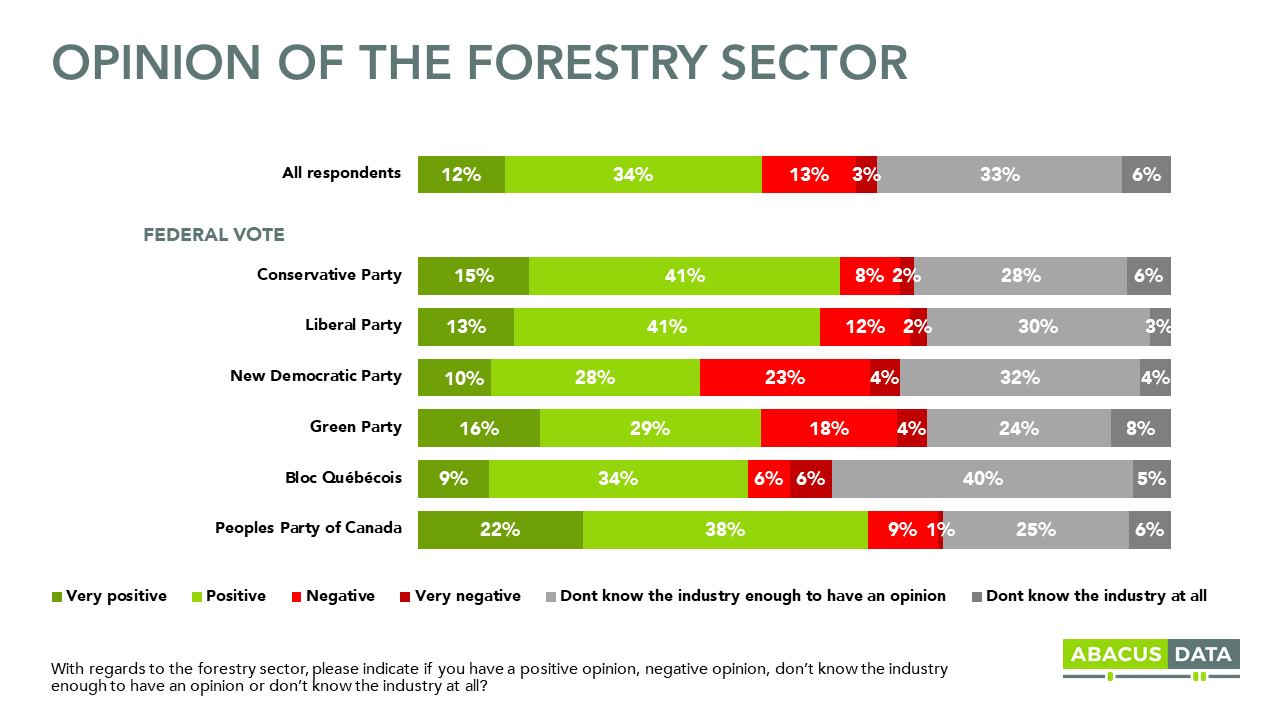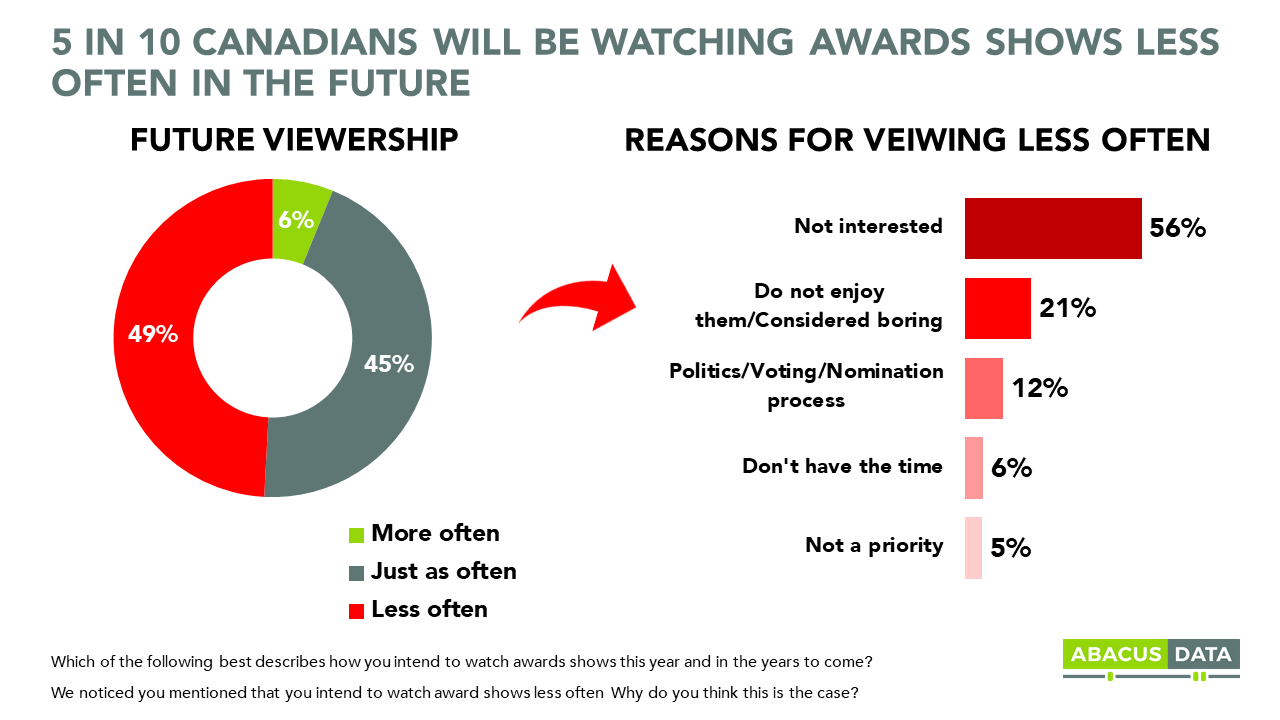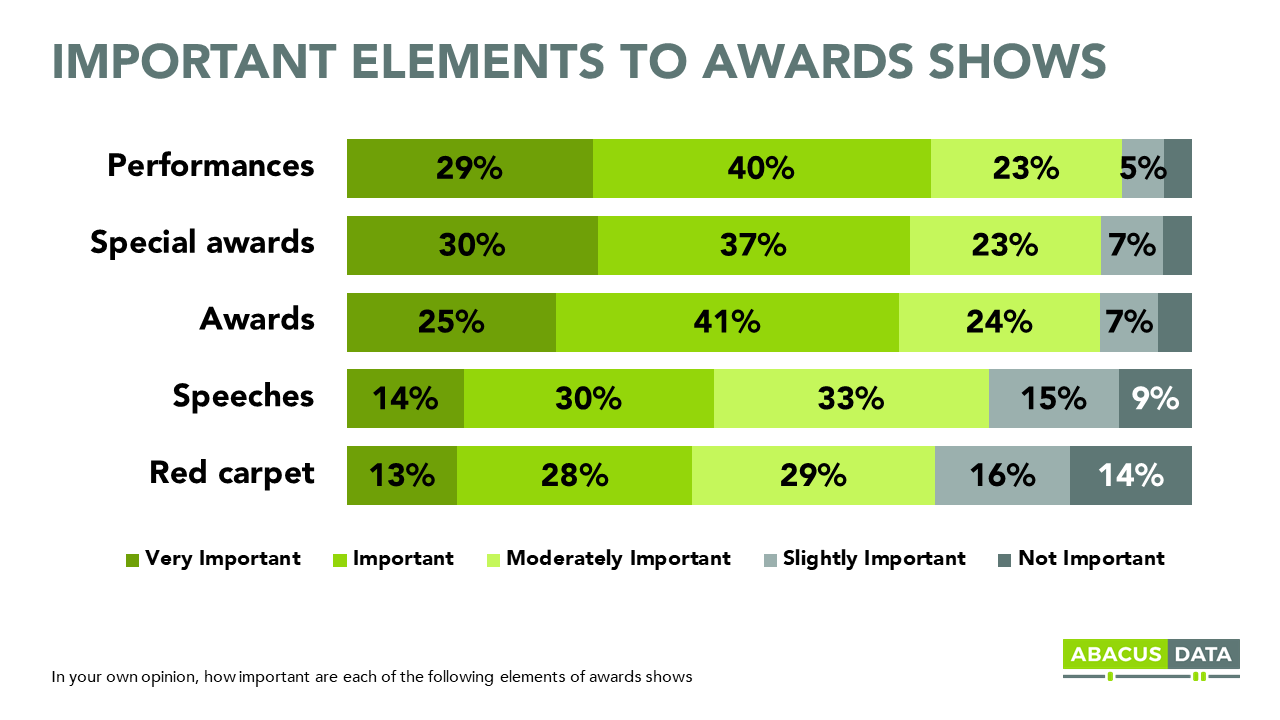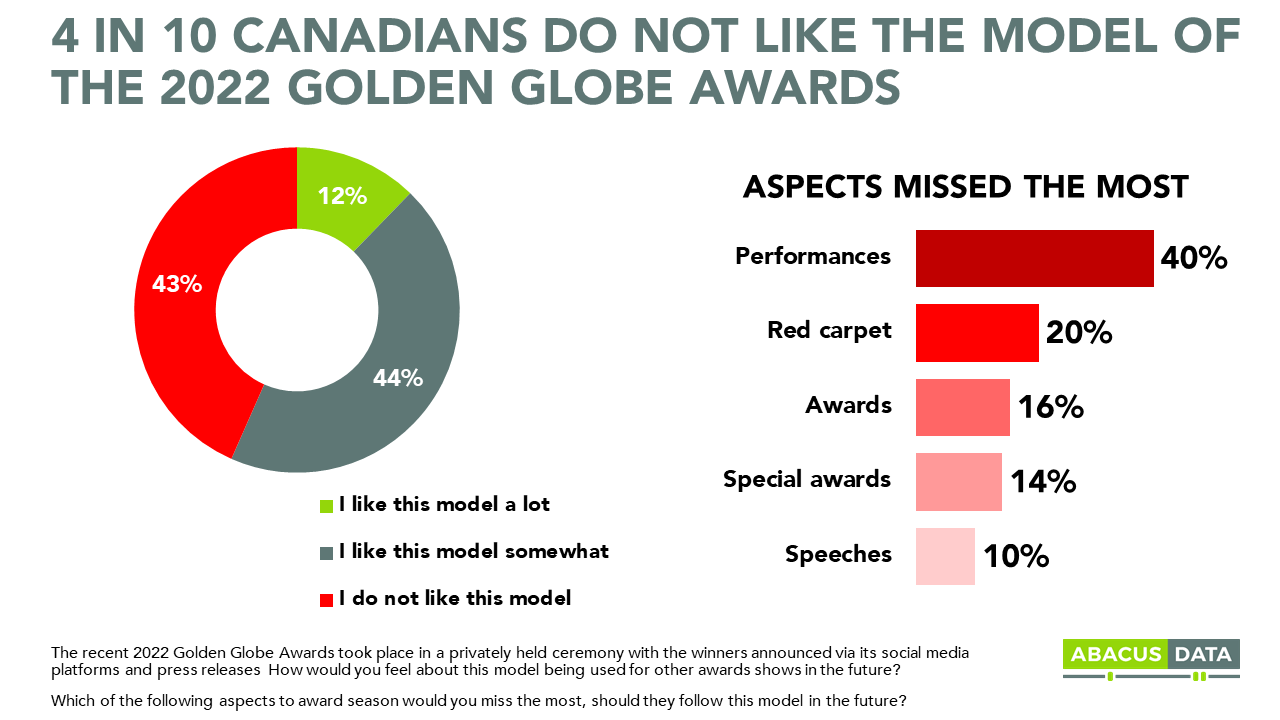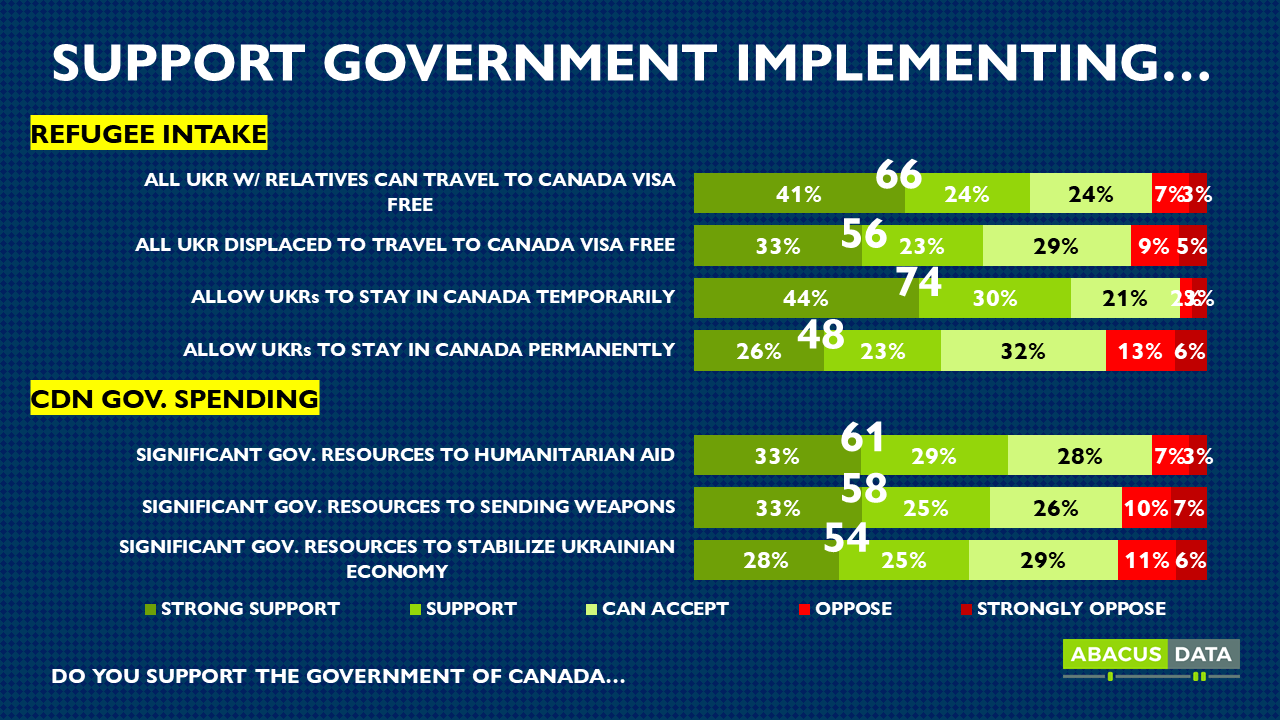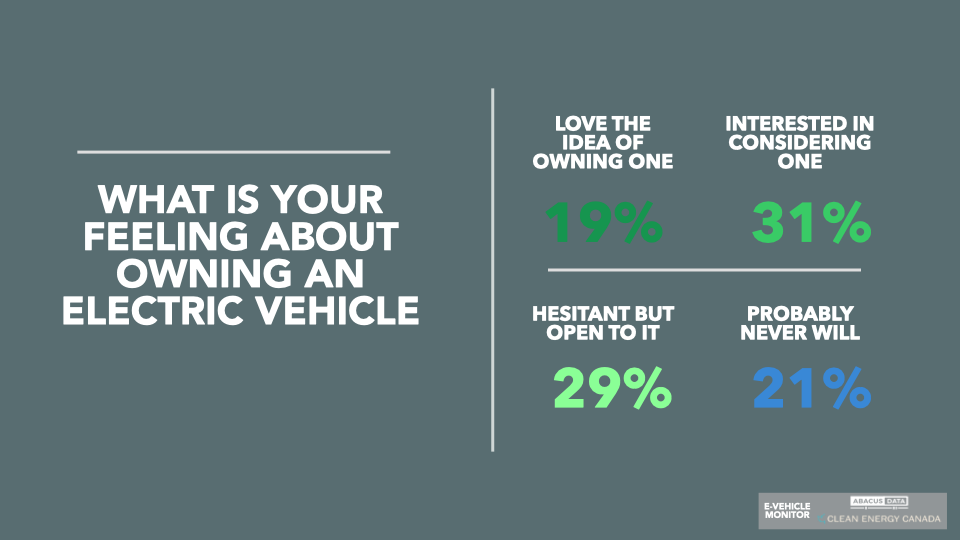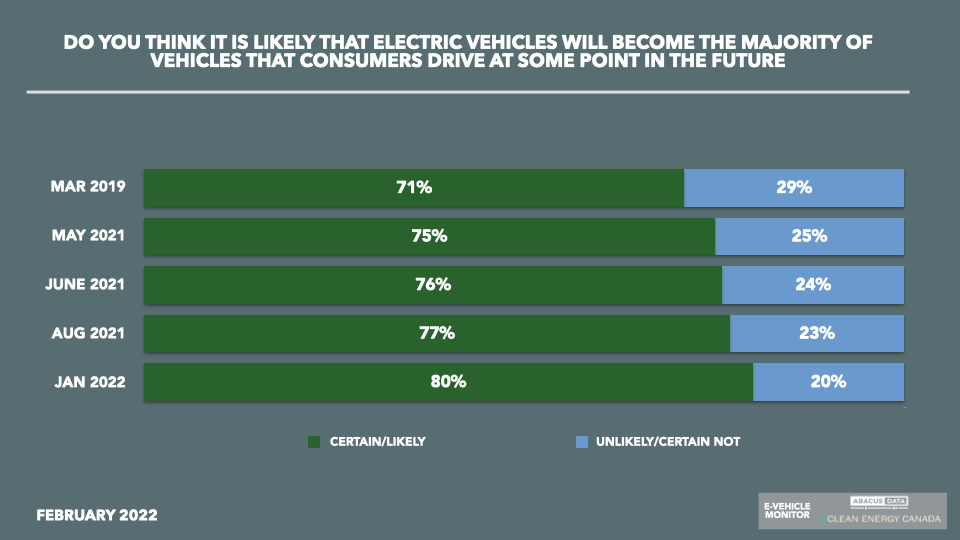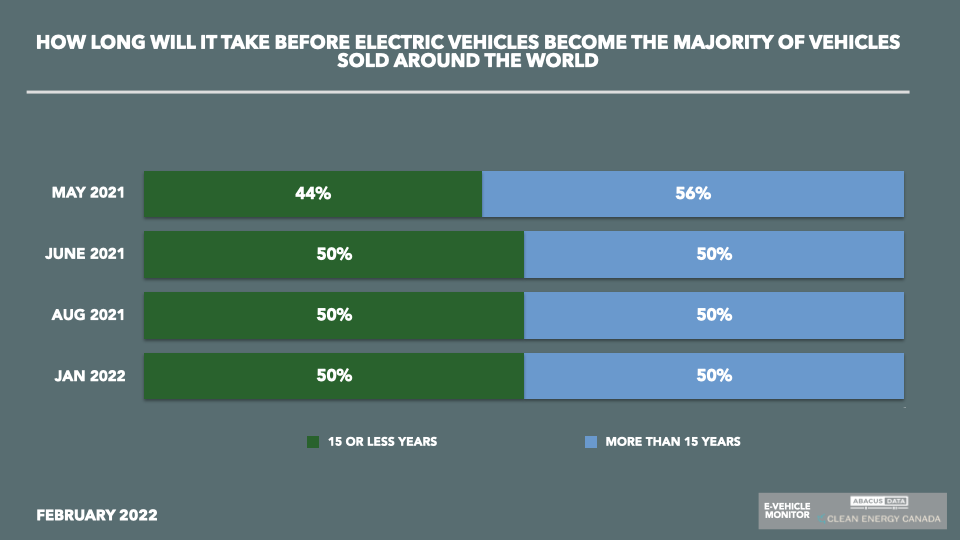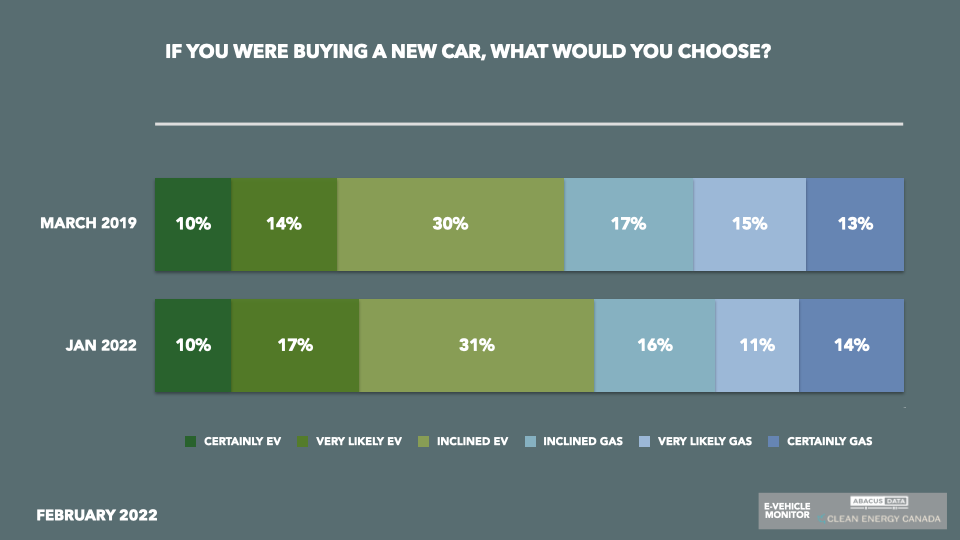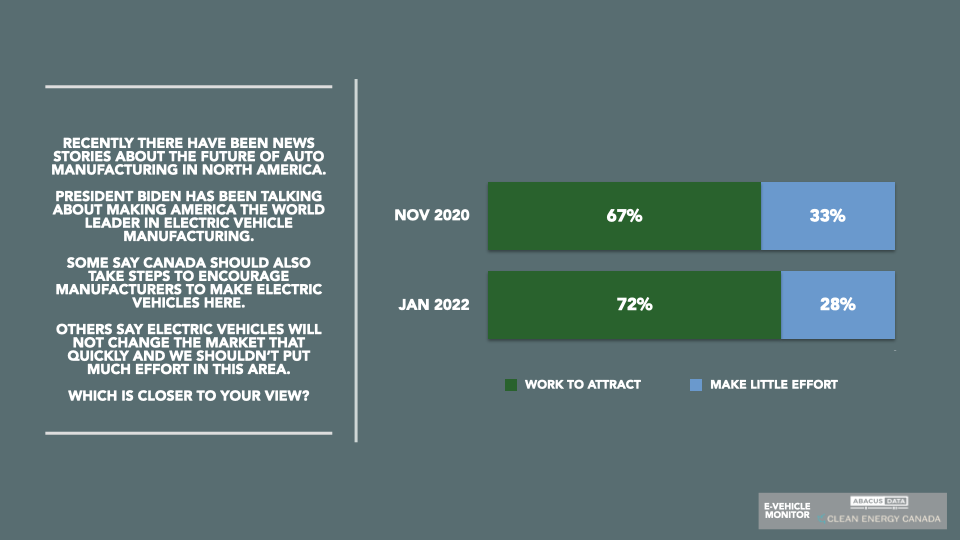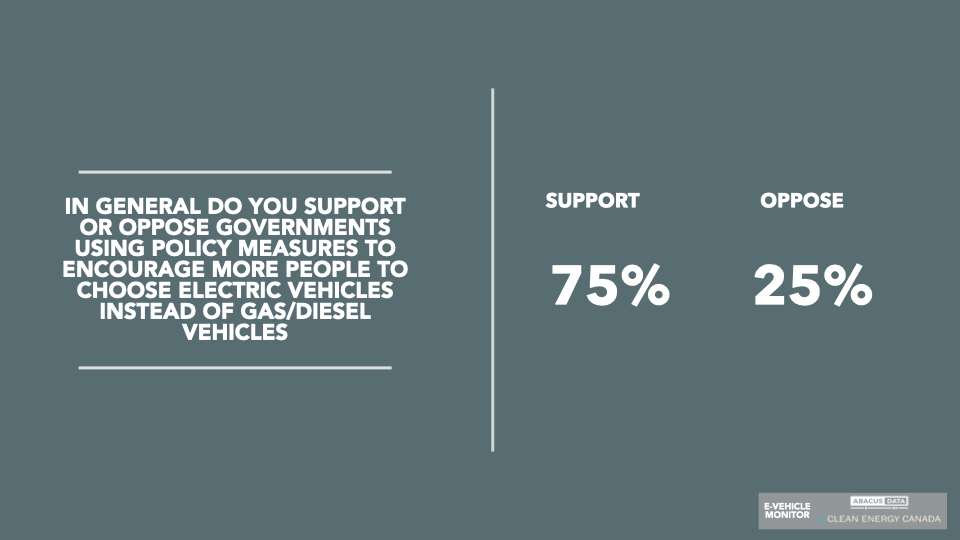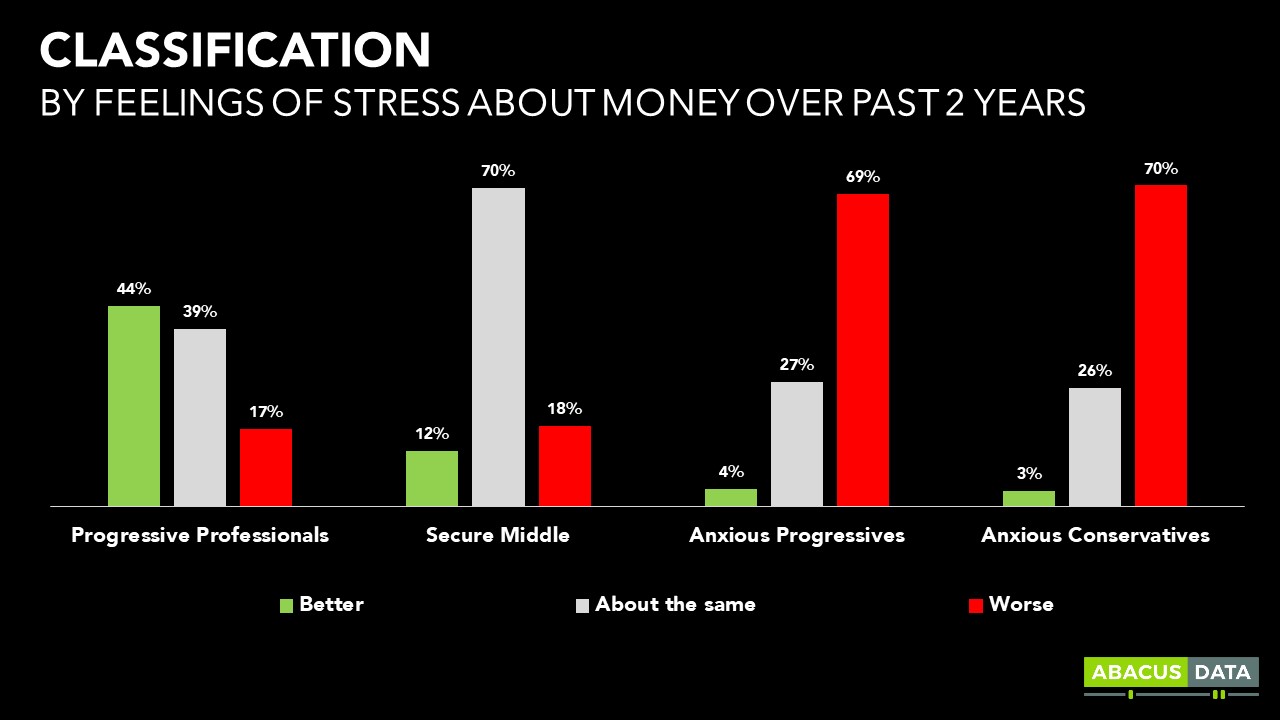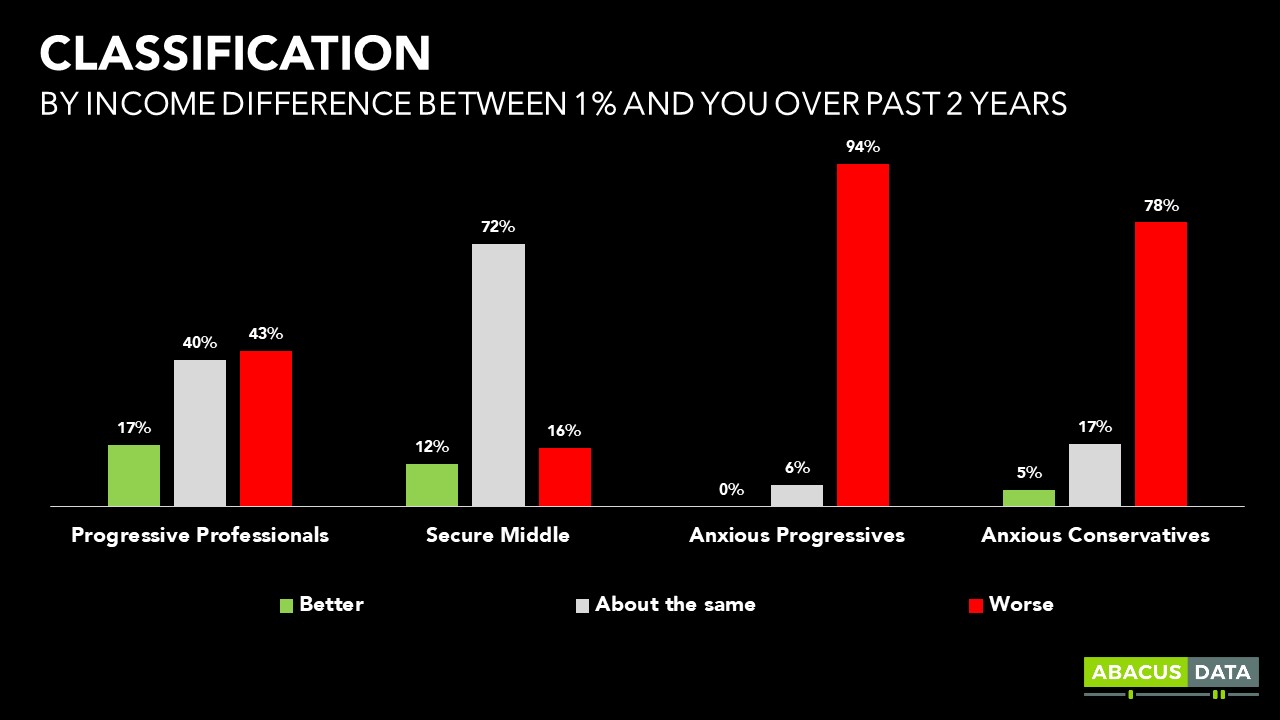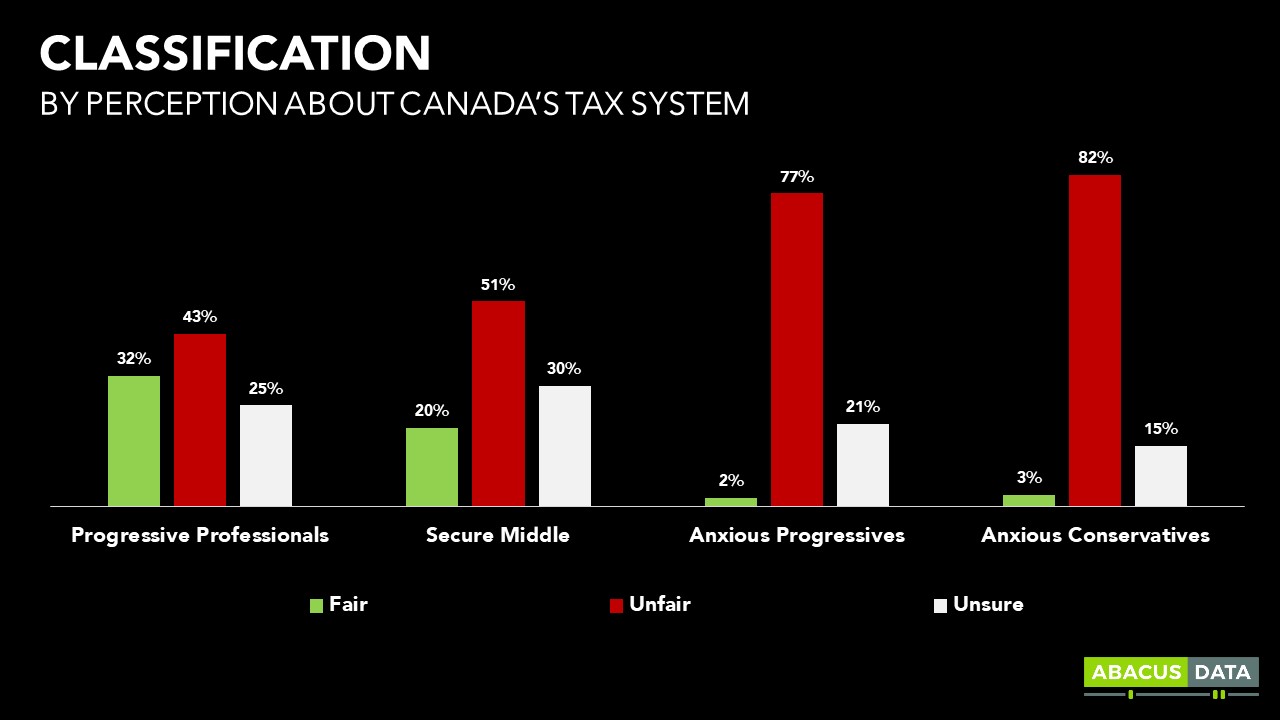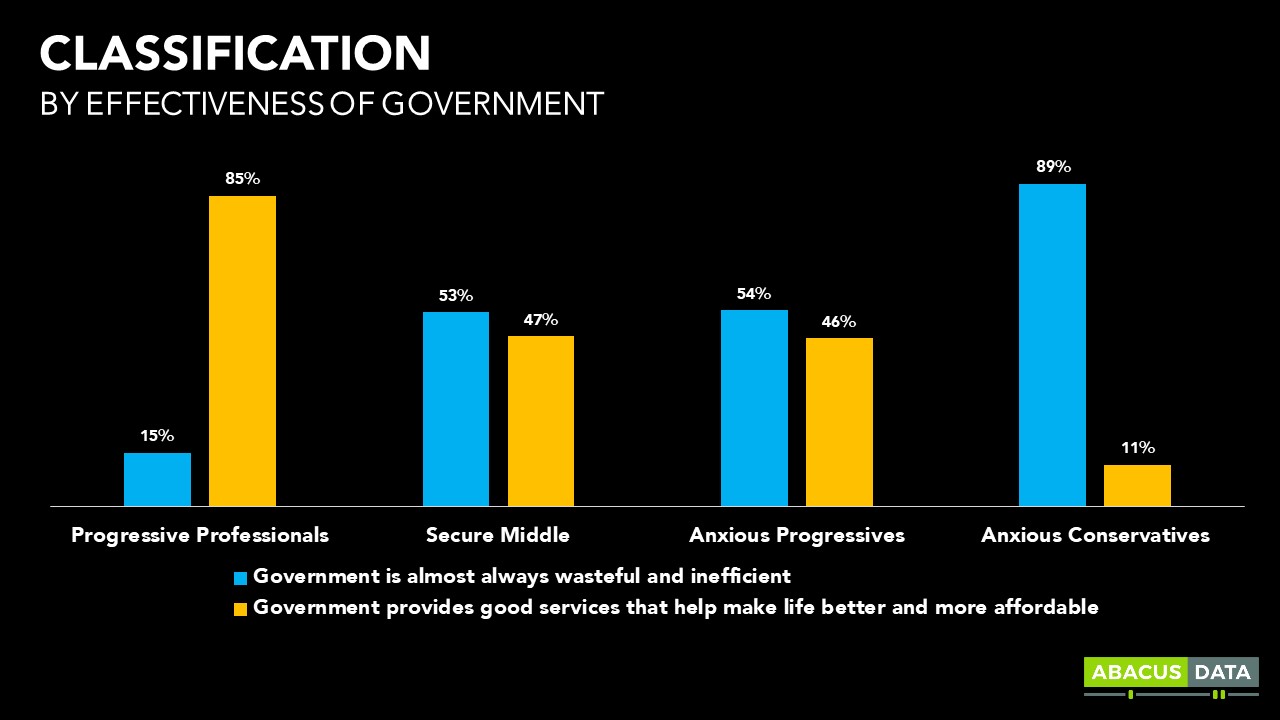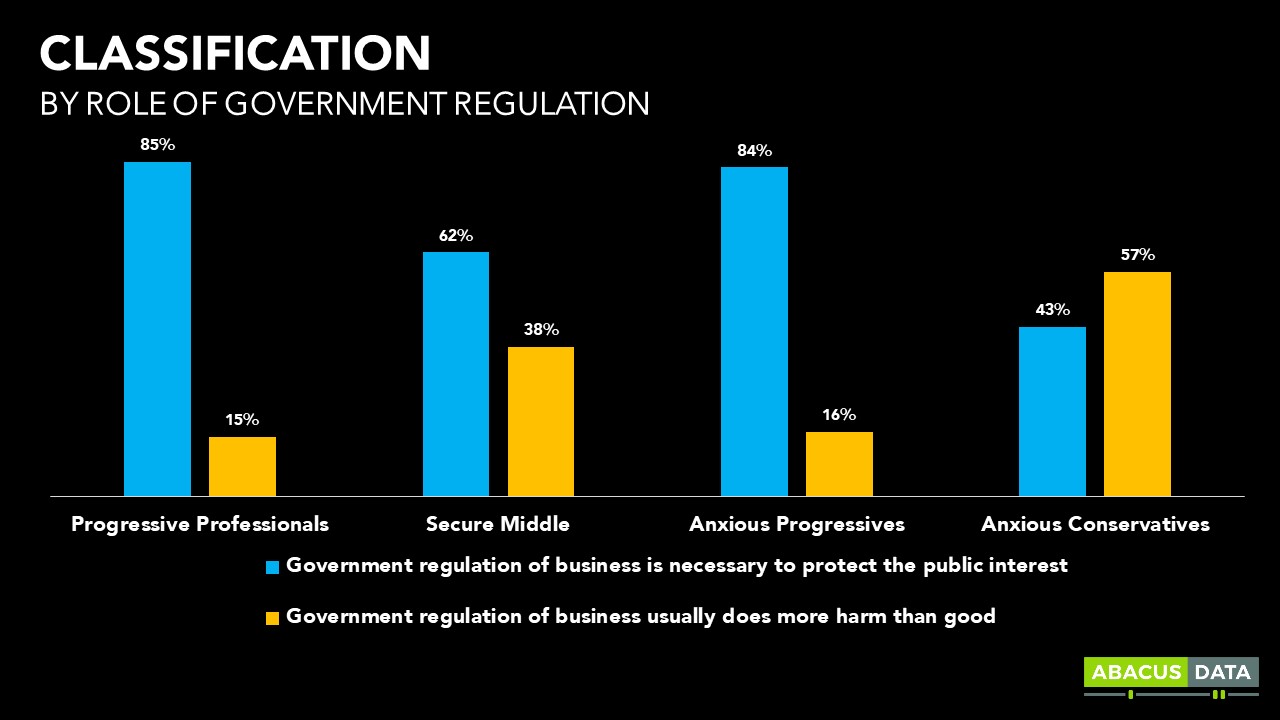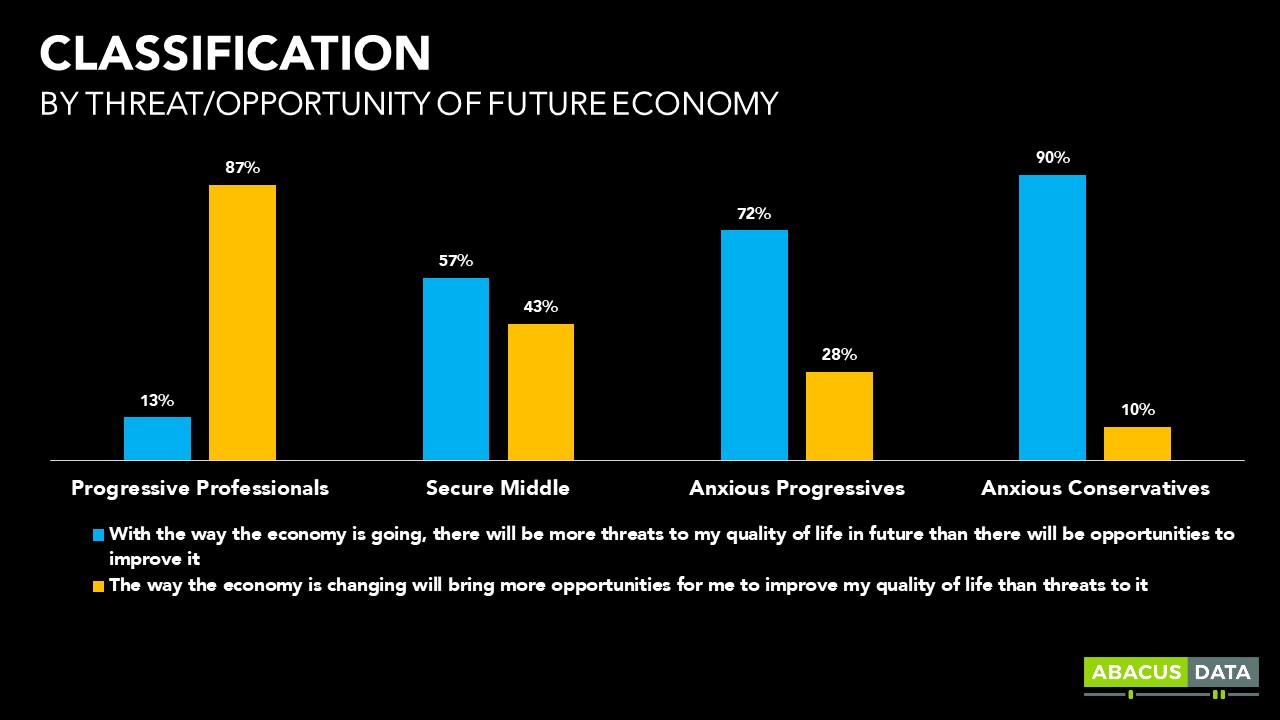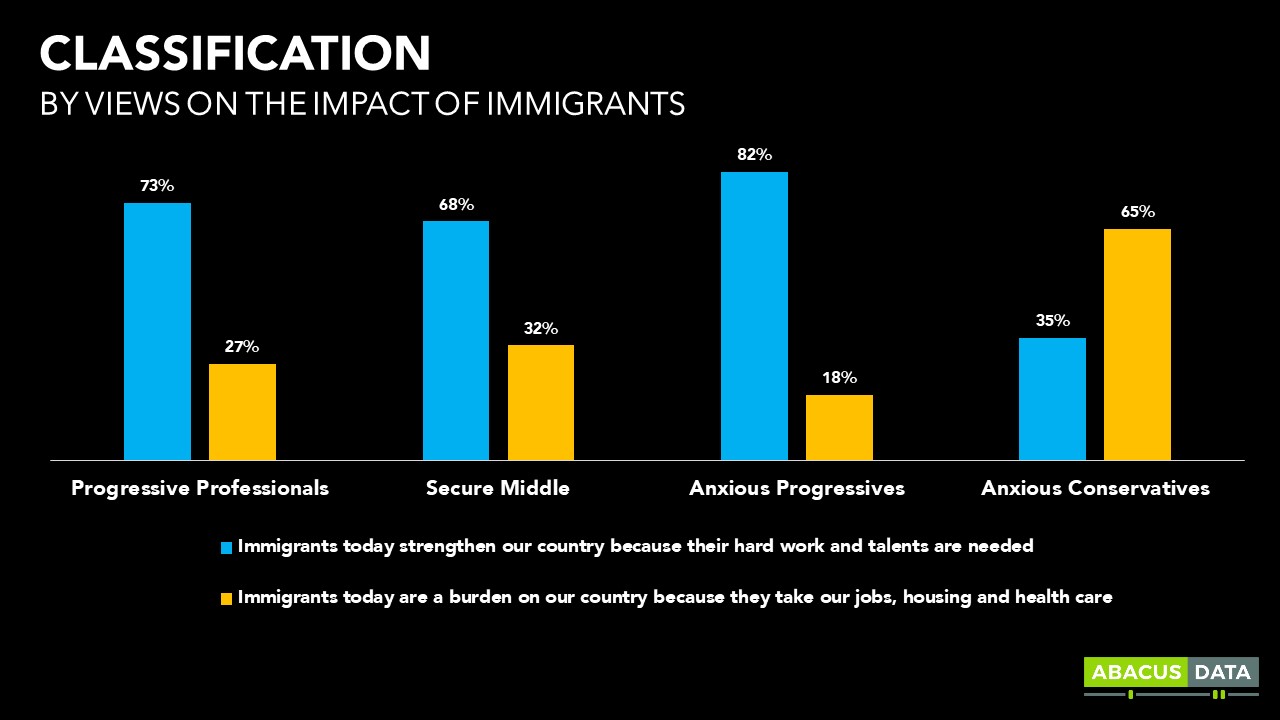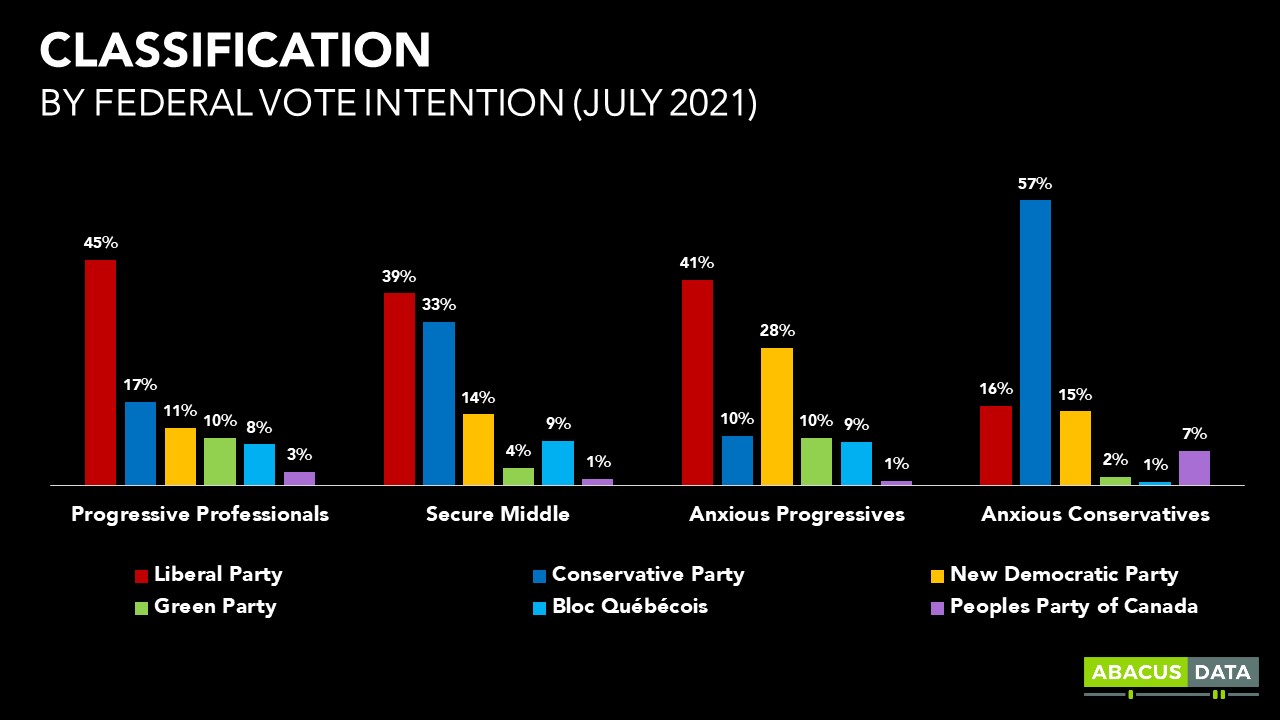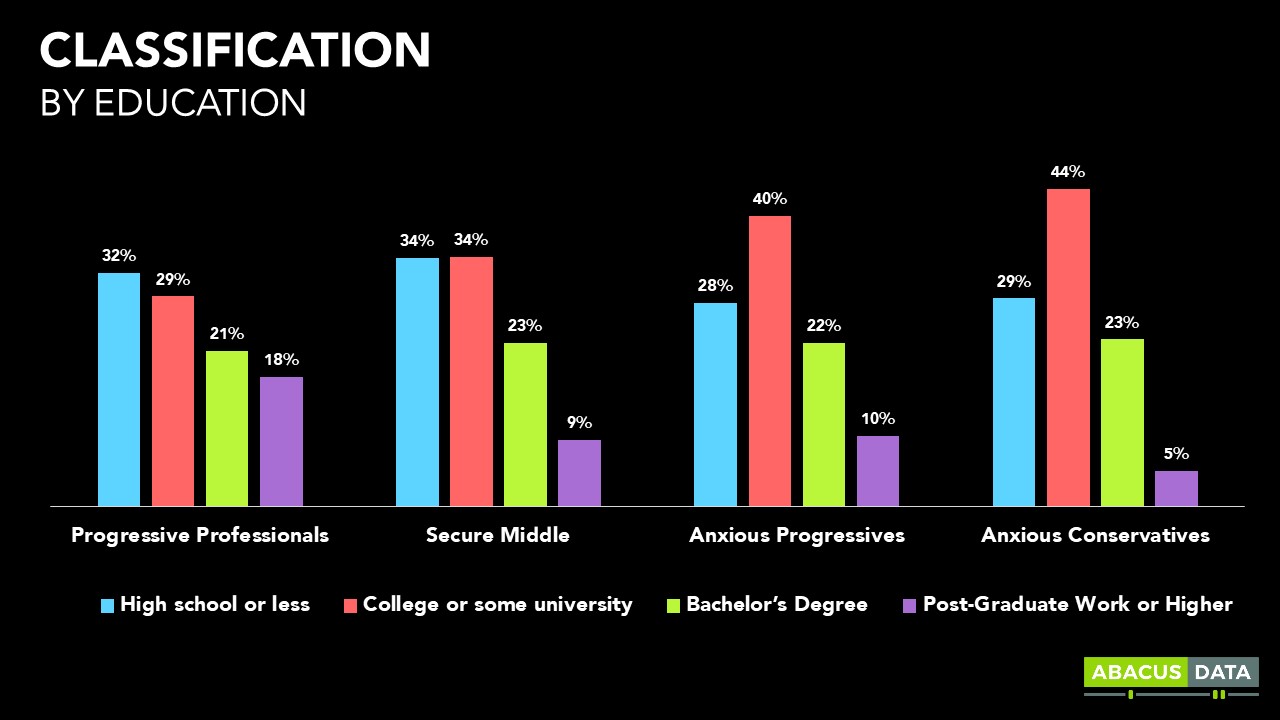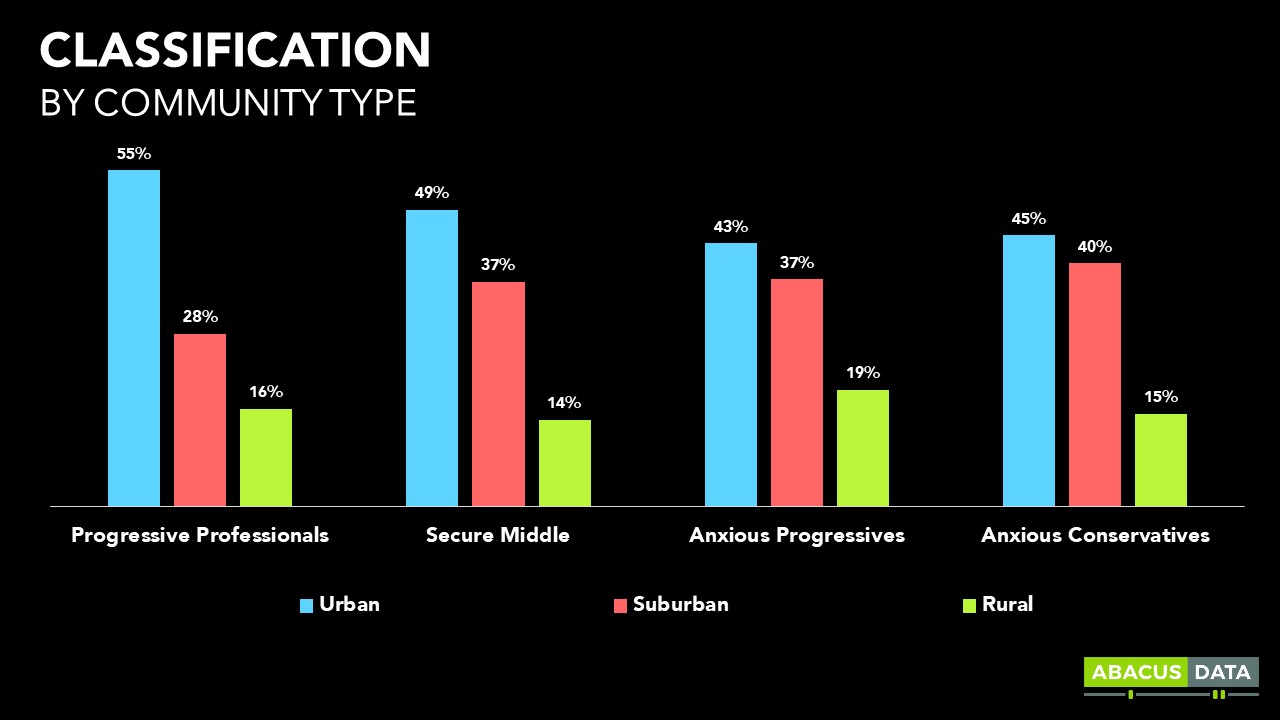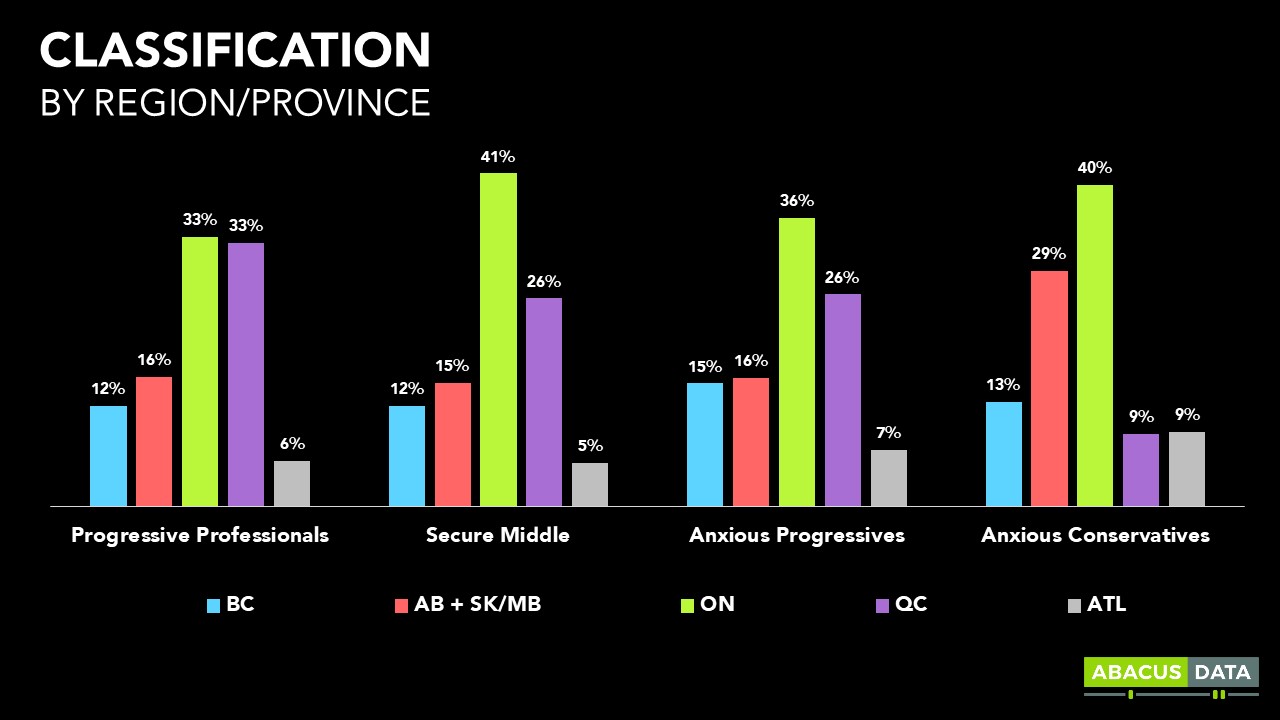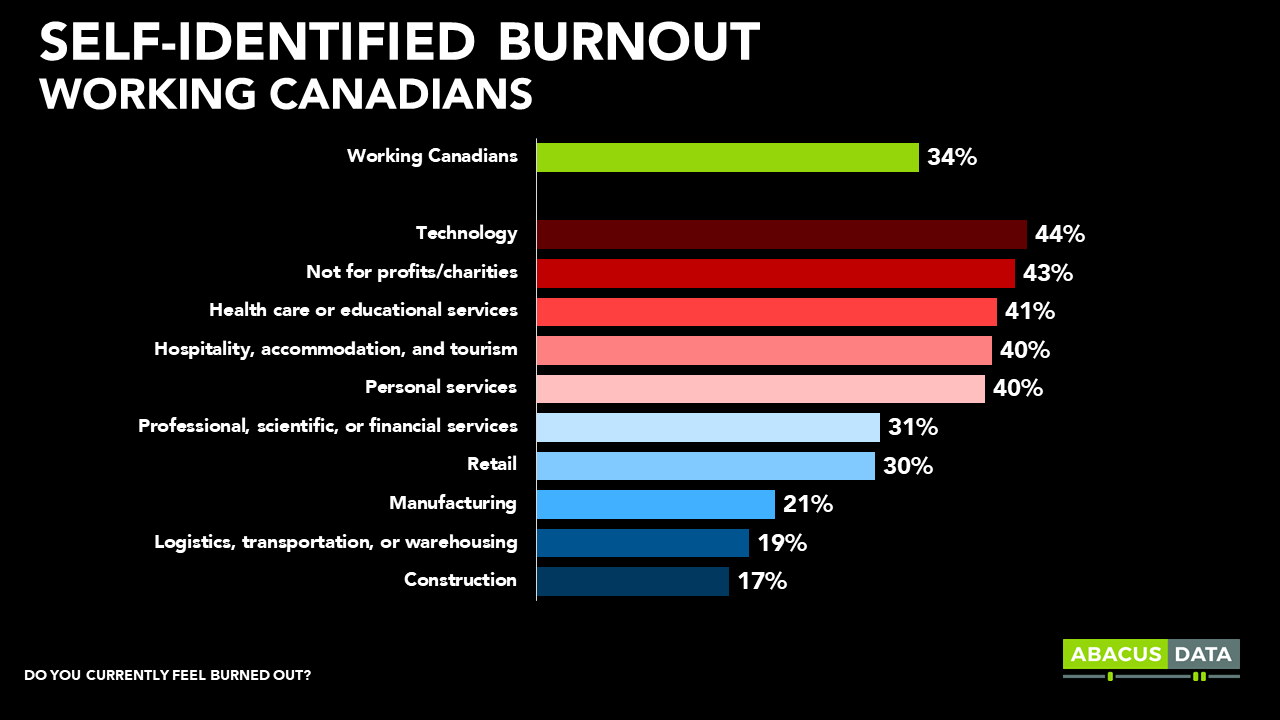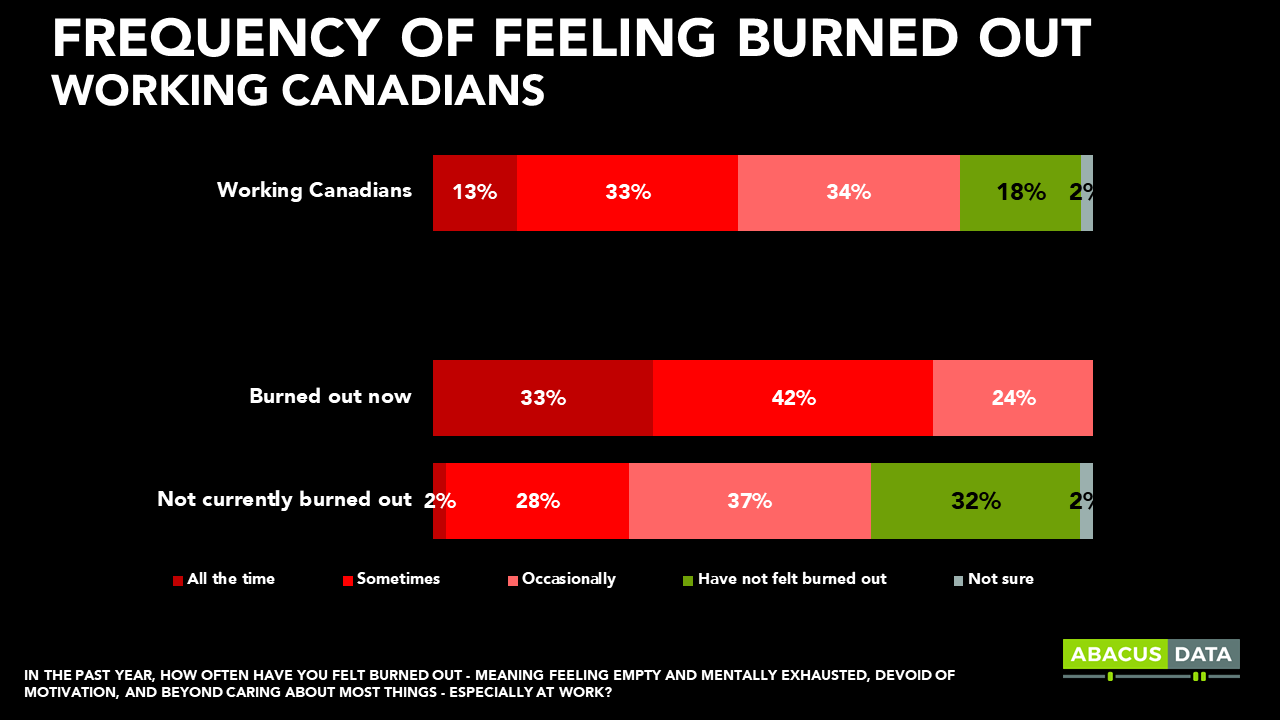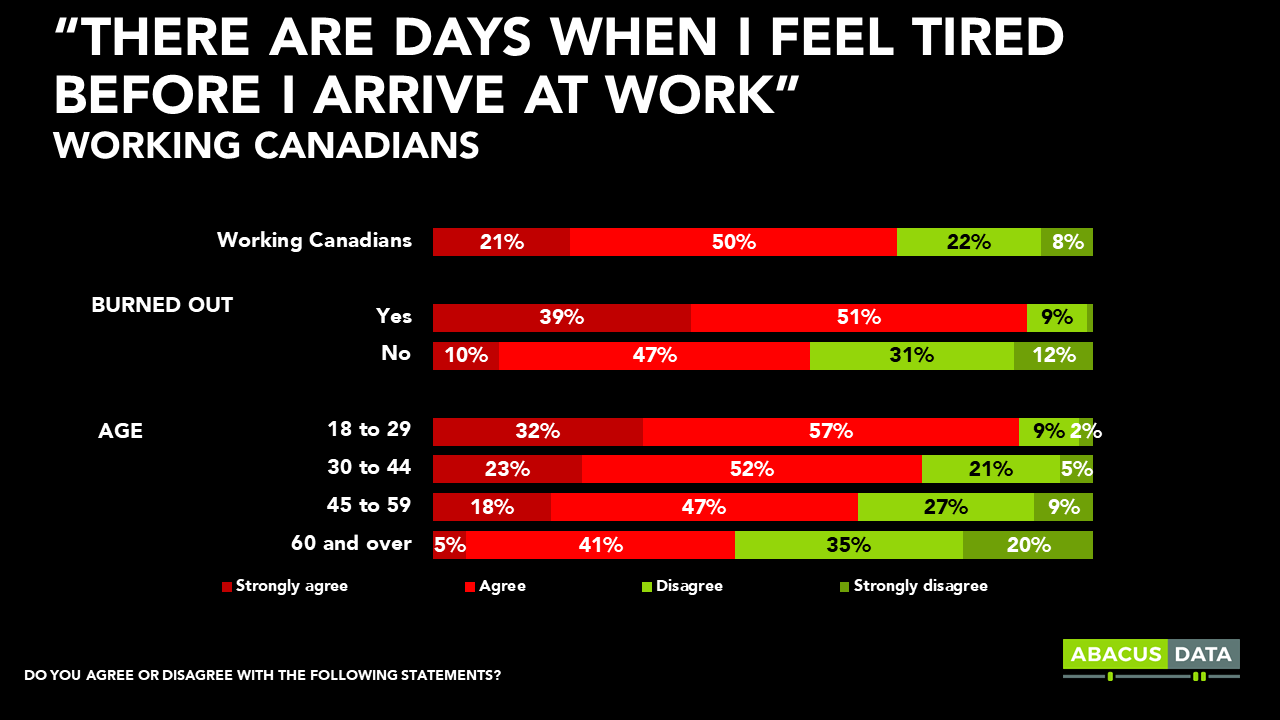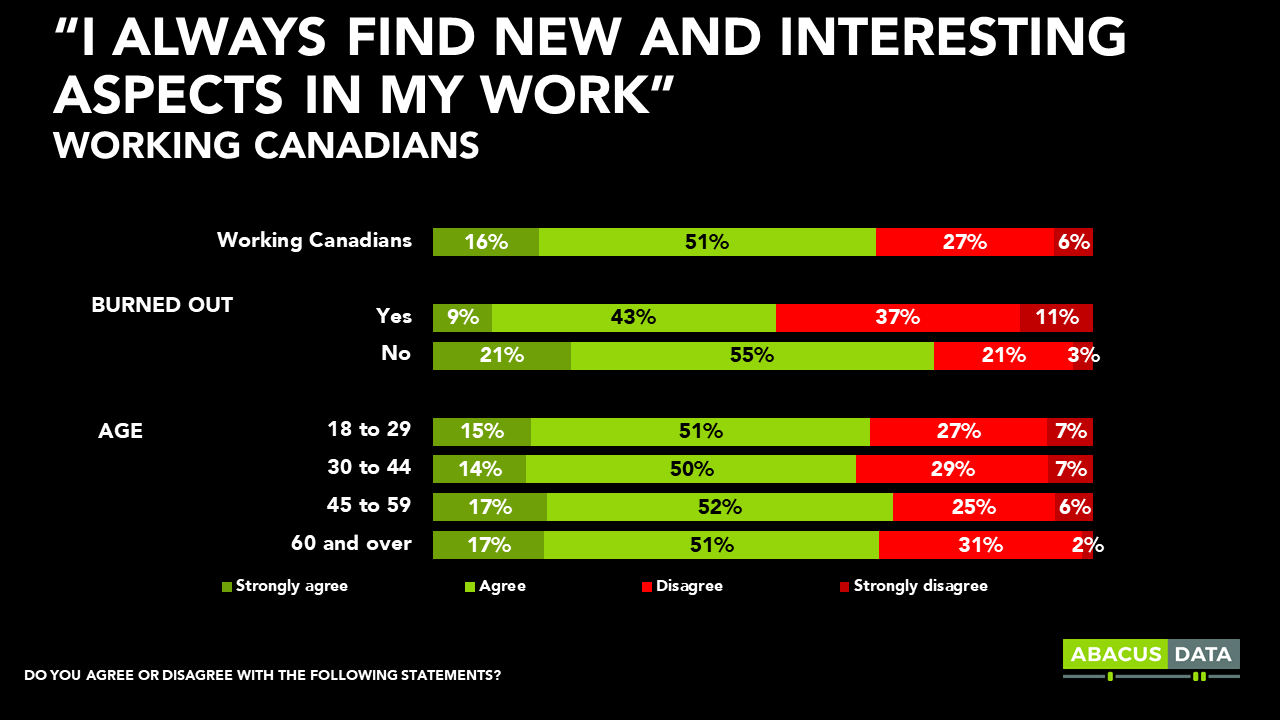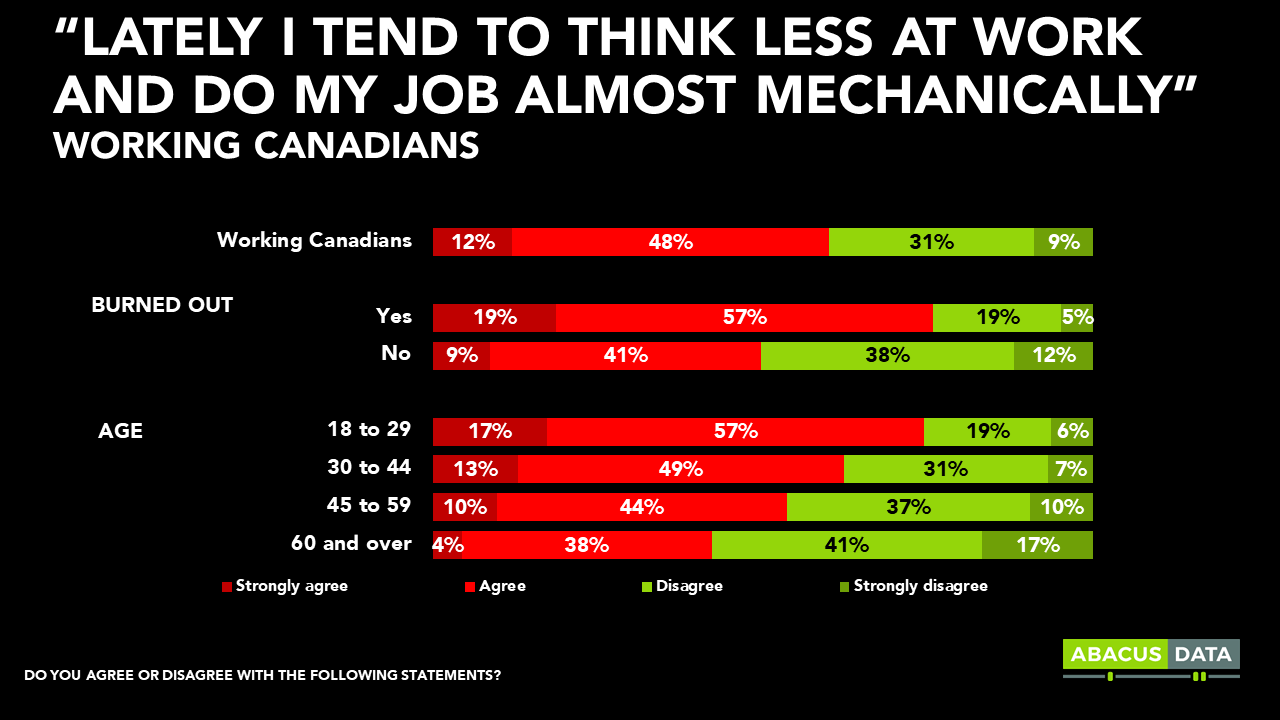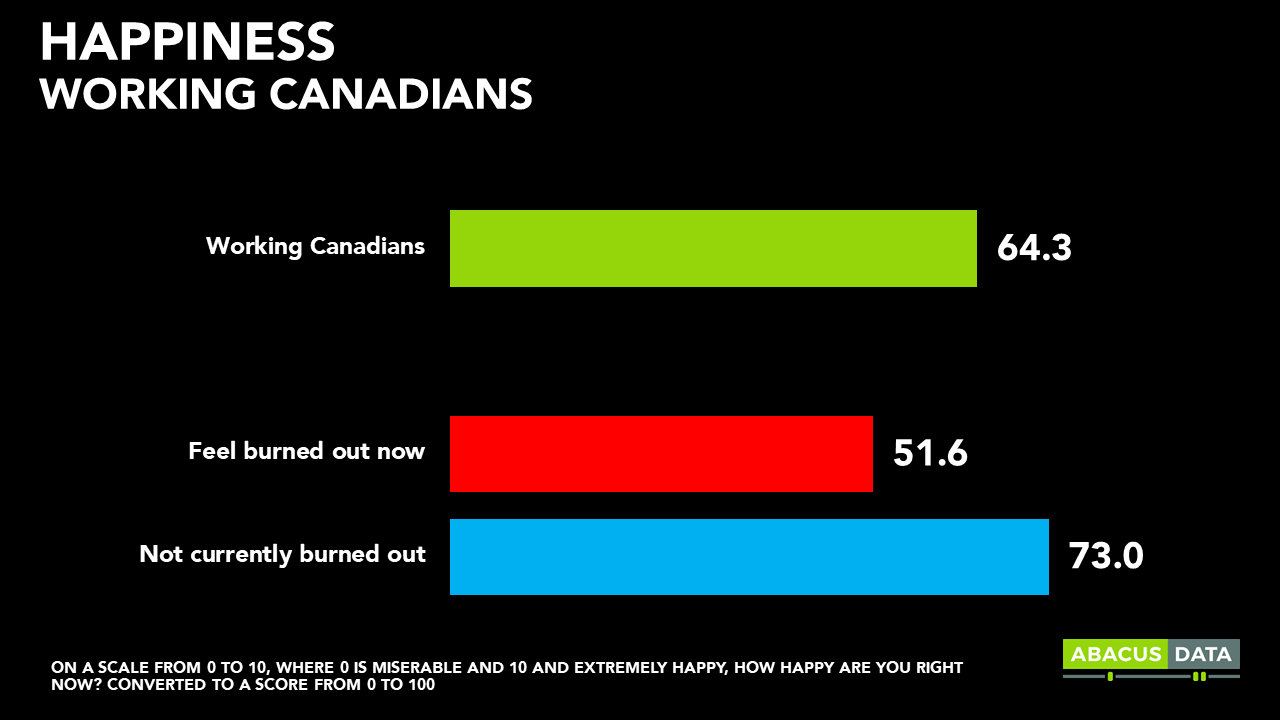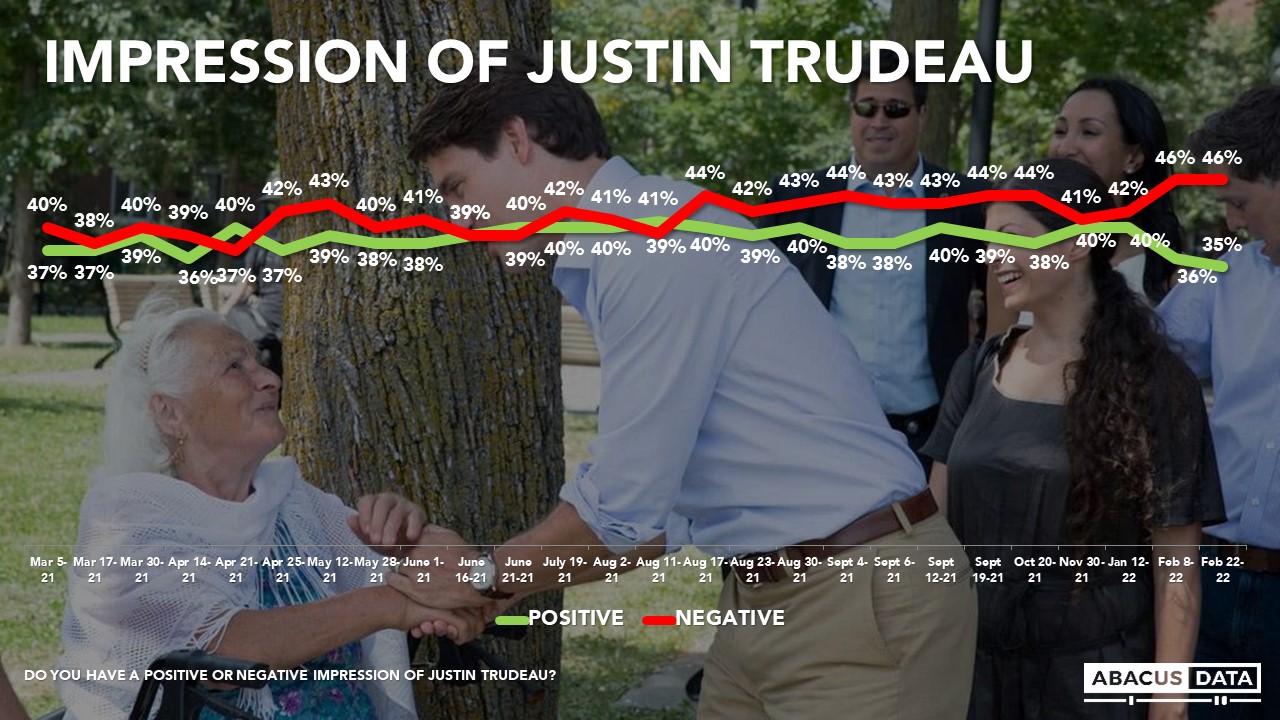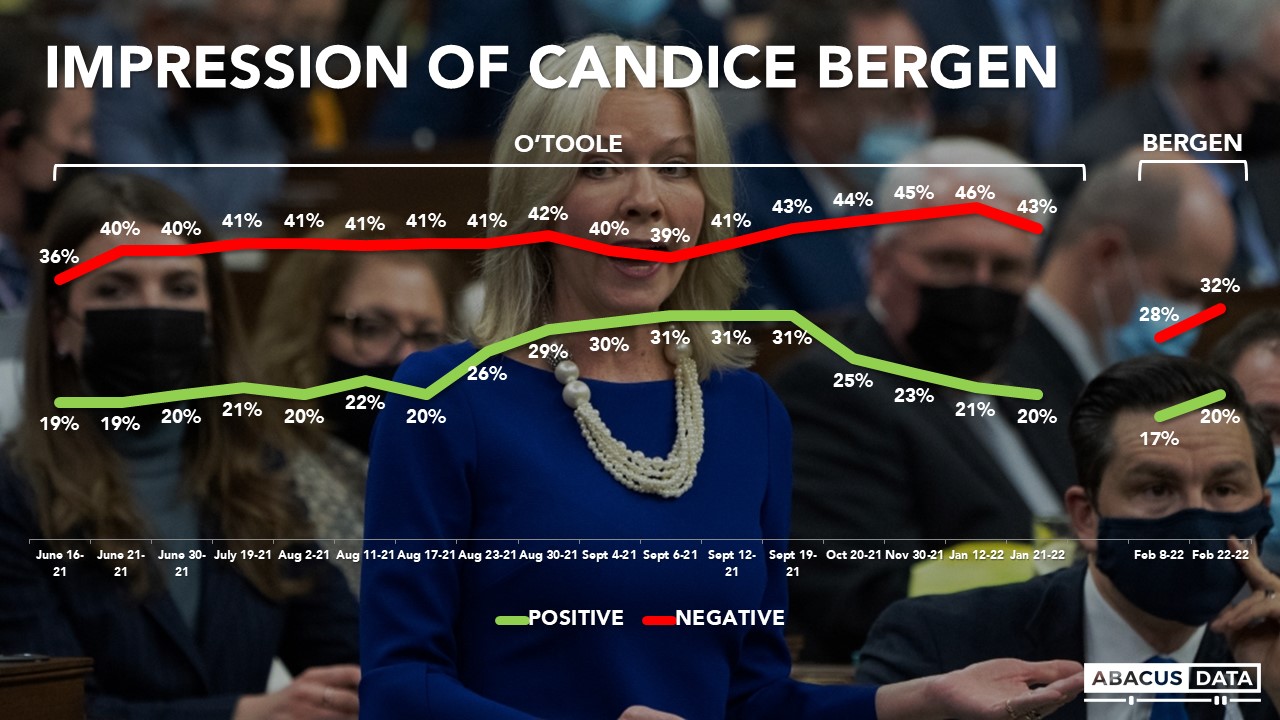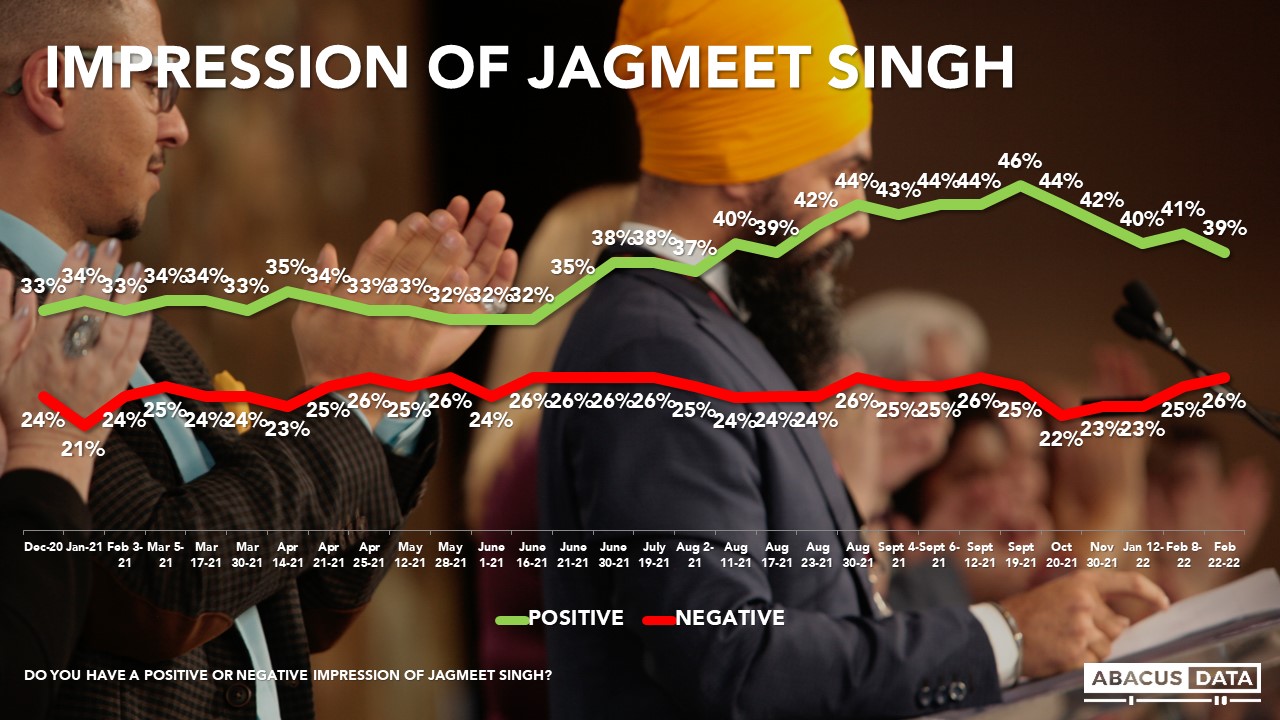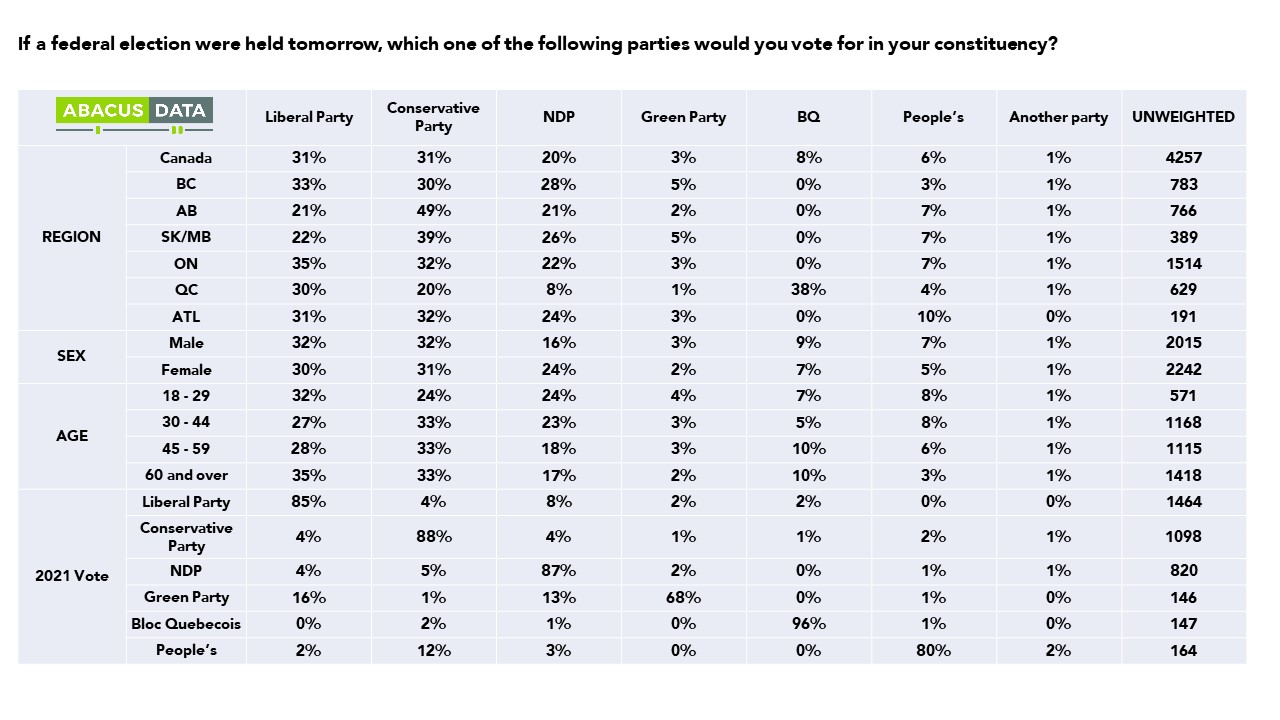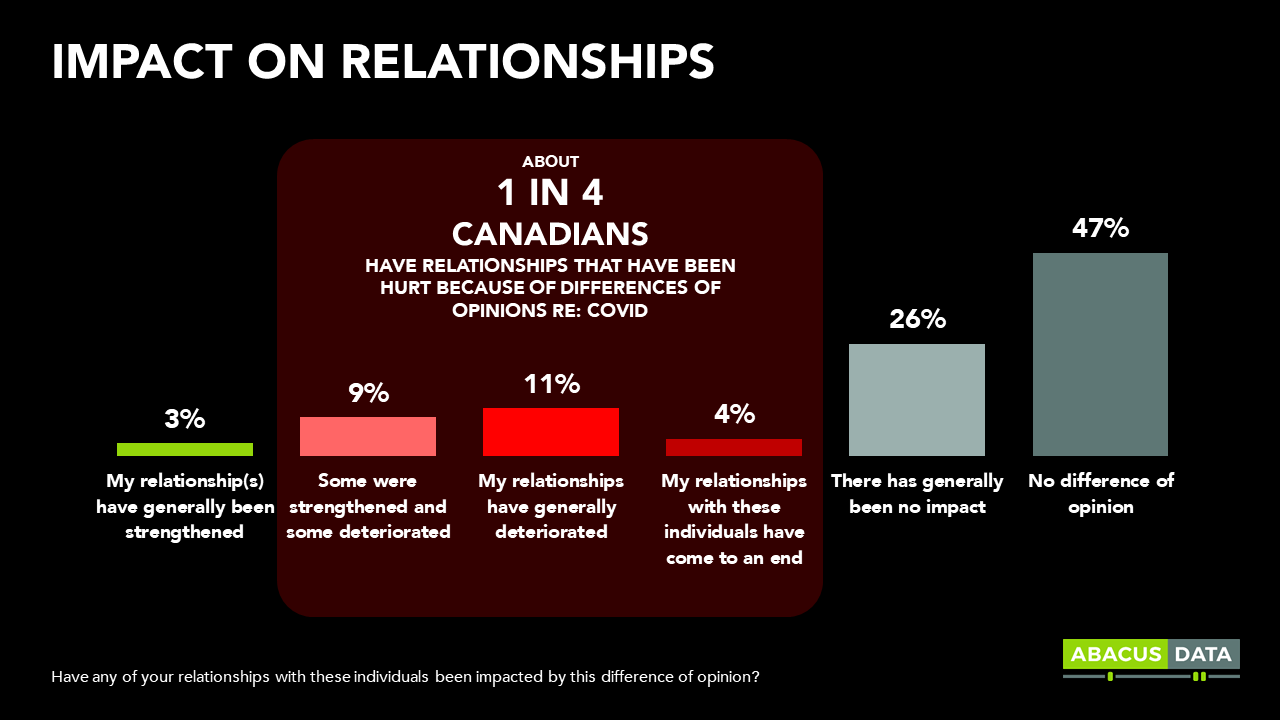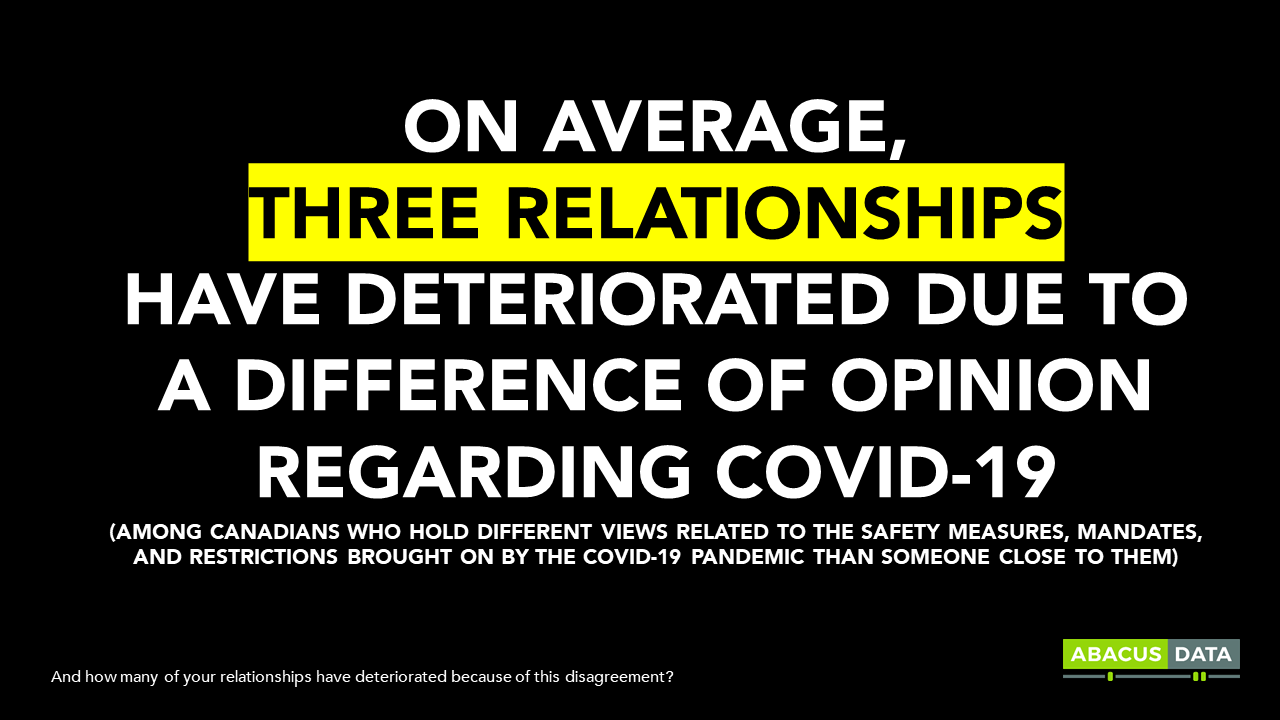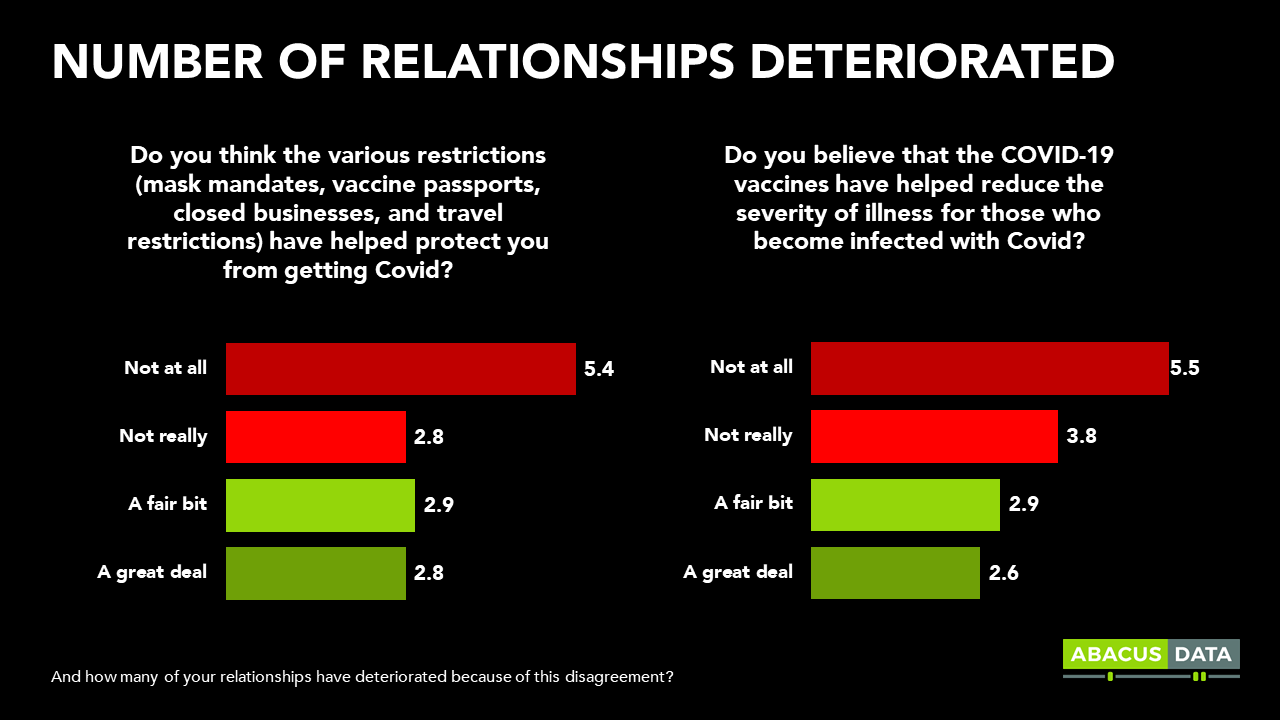Liberal-NDP deal: By 2 to 1 margin, public thinks it will be good rather than bad for Canada
We recently completed a national survey with a sample of 1,500 Canadian adults from March 22 to 25, 2022. All the interviews were completed after news of the Liberal-NDP confidence and supply agreement was reported.
PUBLIC MOOD & GOVERNMENT APPROVAL
The mood of the country has improved markedly from last month. Today 41% of Canadians think the country is headed in the right direction, up 7 while 43% think it’s off on the wrong track. In contrast, views about the direction of the world continue to shift negatively. Today, only about 1 in 5 Canadians believe the world is headed in the right direction.

Approval of the federal government is steady with 40% approving (+1) and 42% disapproving (-4). Disapproval is down and closer to the average we’ve measured throughout 2021.
Net approval (approve – disapprove) is +5 in BC, -28 in Alberta, -19 in Saskatchewan and Manitoba, +2 in Ontario, -2 in Quebec, and +18 in Atlantic Canada.
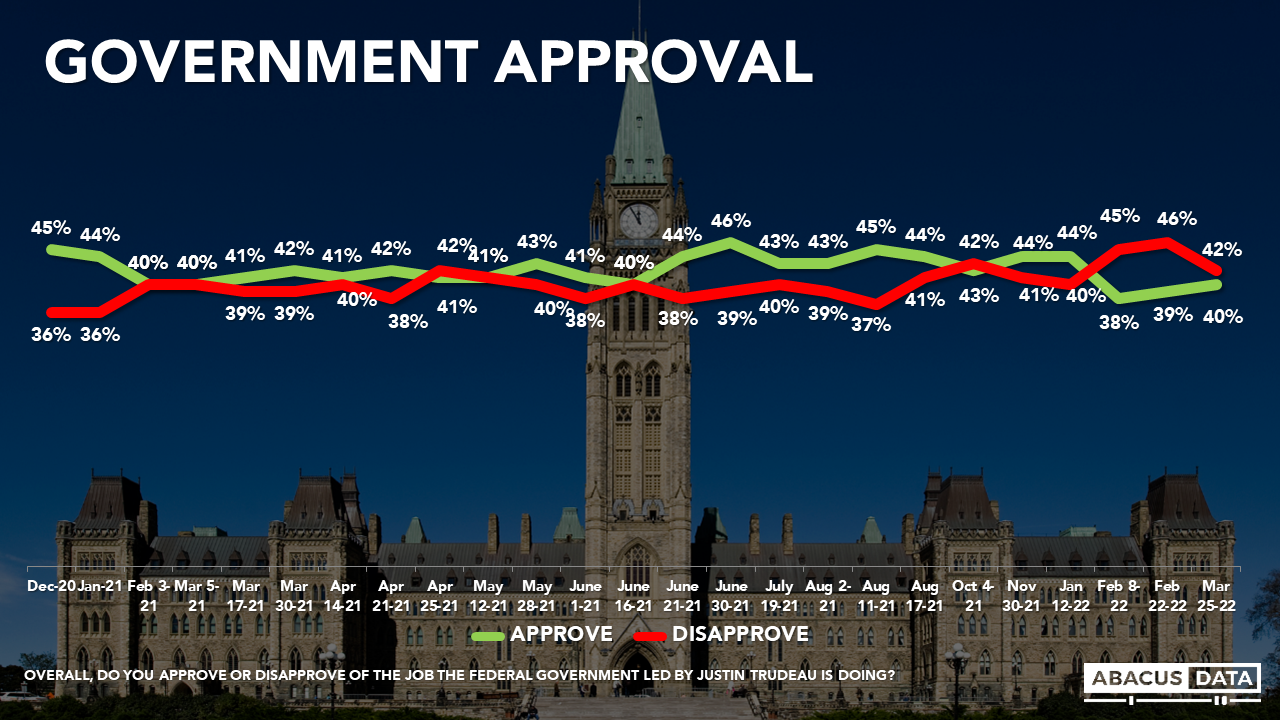
THE LIBERAL-NDP AGREEMENT
In a time when many people don’t follow politics closely, the fact that 64% say that they were aware of the arrangement announced this week indicates that it cut through as being something worth paying attention to for many people.
Awareness levels were fairly similar across Canada’s regions – above 60% everywhere but in Atlantic Canada (56%) and Alberta (59%). Older people and those with a university education were more likely to be aware, as were those on the left (73%) and right (71%), compared to the centre (56%).

When asked whether they thought the agreement would be good or bad for Canada, among those aware of the agreement, just under half (48%) felt it would be good for Canada while 27% felt it would be bad. (Of the sample as a whole – including those who were learning about the agreement during the course of completing the interview – 44% felt it would be good for Canada, while 25% felt it would be bad. 17% felt it would make no difference while 15% were unsure.)
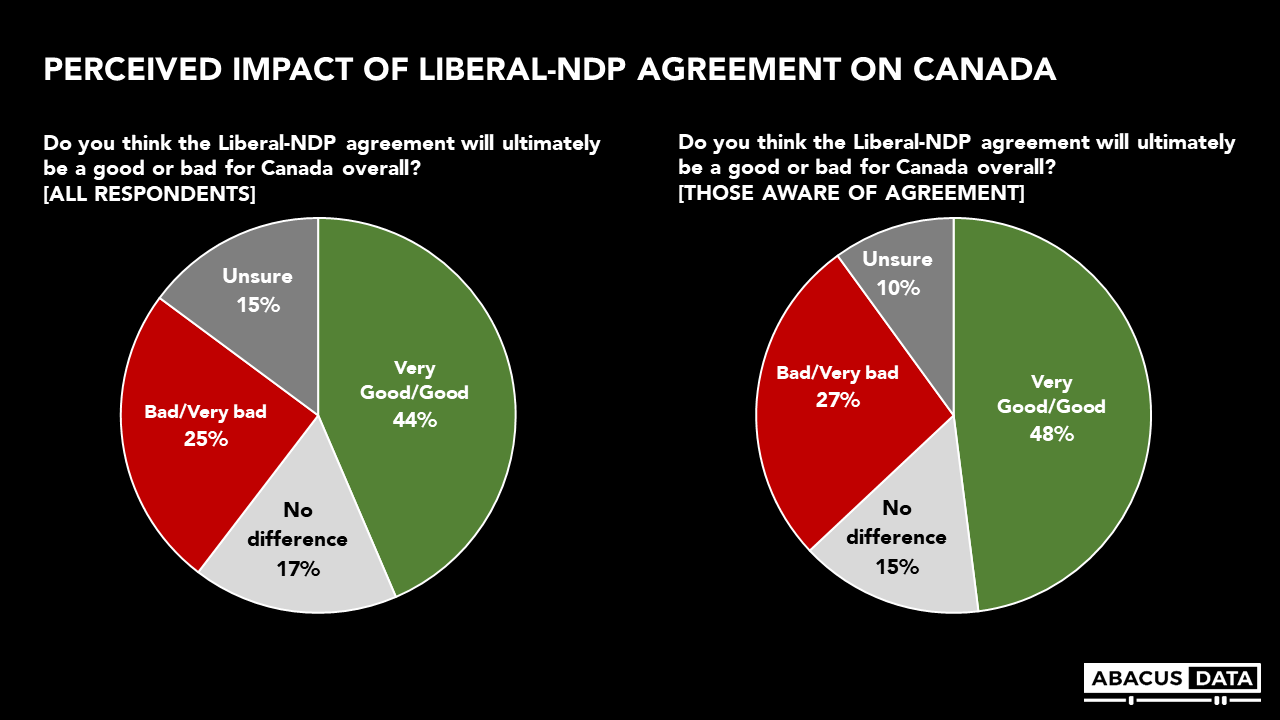
Just over half of those on the right think the deal will be bad for Canada, while those on the centre are 39%-22% more likely to think it will be good than bad. On the left opinion runs 5:1 positive.
Positive reactions to the agreement were highest among Liberal voters (74%) and more than half of those who voted NDP in 2021 (55%) felt the agreement would ultimately be good for Canada. Only a small minority of Liberal, NDP, or Green Party voters felt the deal would be bad for Canada. In contrast, a majority of Conservative voters (58%) thought it would be bad for Canada.
Regionally, positive reactions were more likely in BC, Ontario, Quebec, and Atlantic Canada than in the Prairies. In Alberta, about equal numbers felt it would be good and bad for Canada overall (33% good vs. 37% bad).
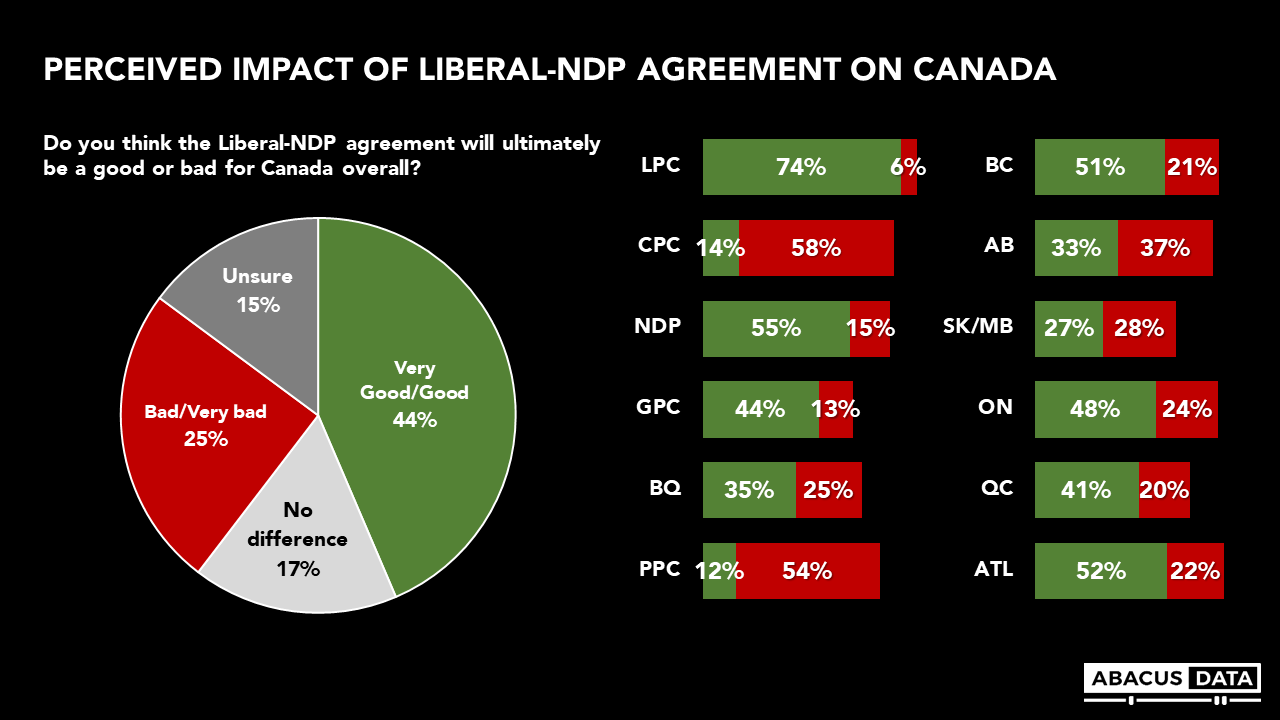
When asked whether the deal would be good or bad for them personally, responses followed a similar pattern with 44% anticipating upside, 25% downsides. Those on the left and centre were more optimistic about the personal impact, while those on the right were more pessimistic. Views didn’t vary all that much by income, indicating so far that the left-right differences have more to do with partisanship than economic class.
The biggest predictor of reaction to the deal was one’s vaccination status. Those who have not received a vaccination were more than twice as likely to think the Liberal-NDP deal would be bad for Canada than those who have received a single dose.
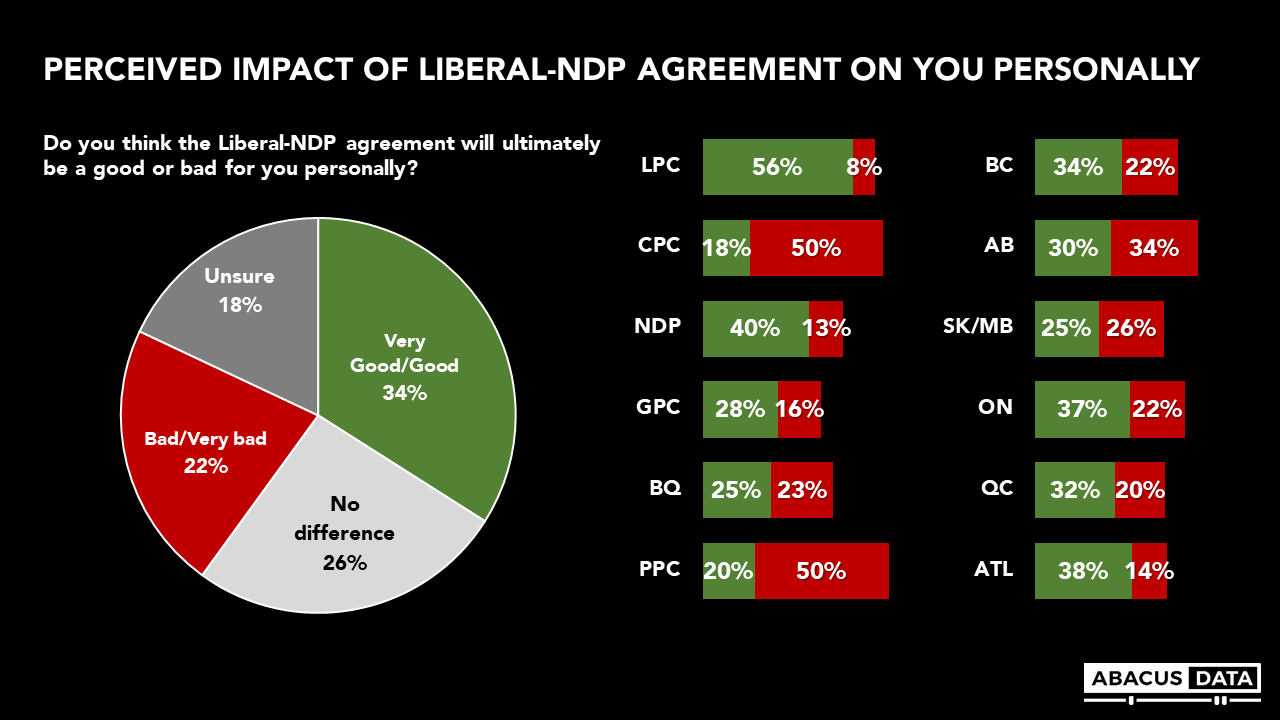
LEADER IMPRESSIONS
Since last month, Justin Trudeau’s personal image has improved somewhat. He enjoys a positive impression among 38% (+3) and negative impressions among 42% (-4), for a net score of –4.
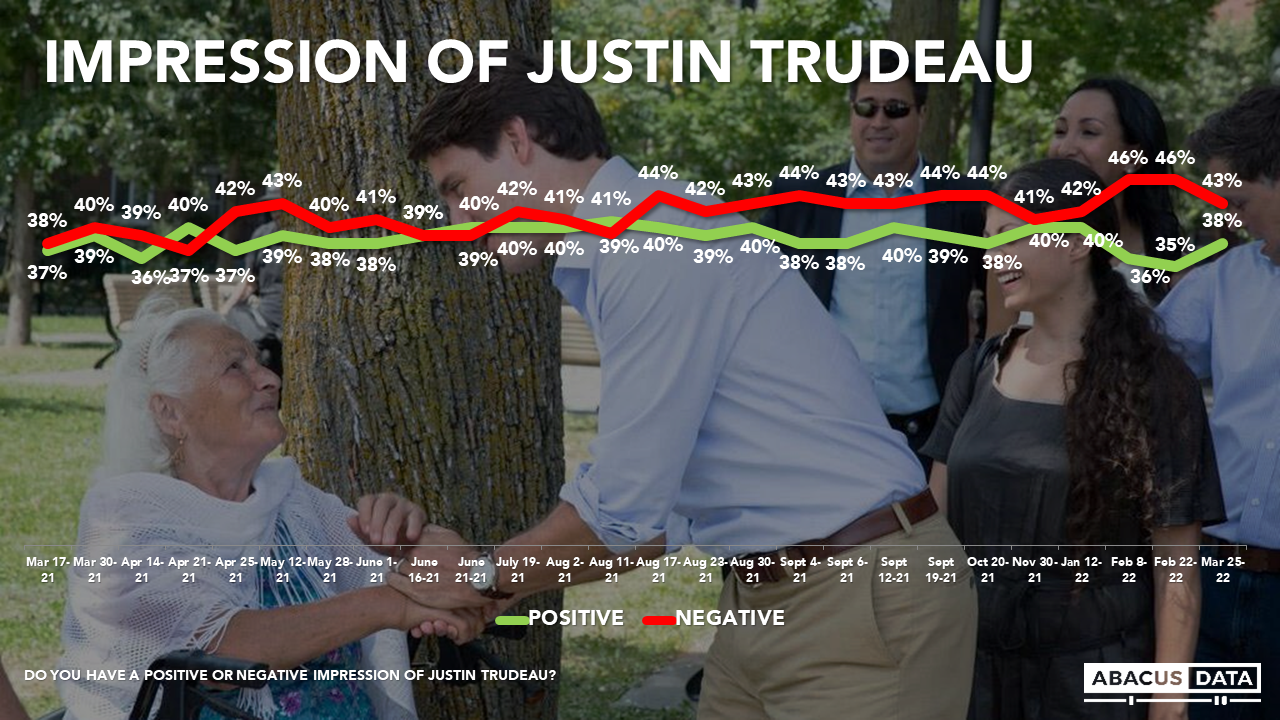
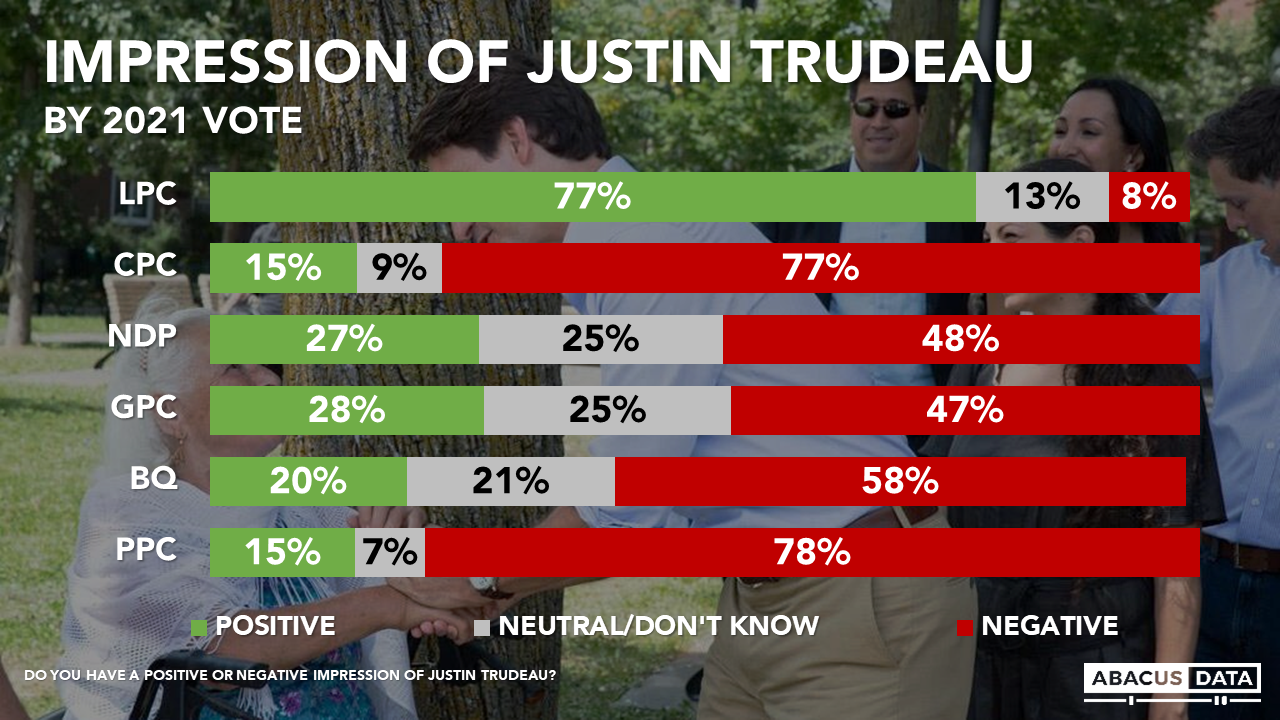
Positive impressions of NDP Leader Jagmeet Singh remained fairly consistent from last month. Today, he enjoys a positive impression among 41% (+2) and finds negative impressions among 28% for a net score of +13.
79% of NDP voters have a positive impression of Mr. Singh as do a half of Liberal voters (52%). 1 in 5 Conservative voters have a positive view of him while 73% of People’s Party voters have a negative view – the highest among any party voter group.
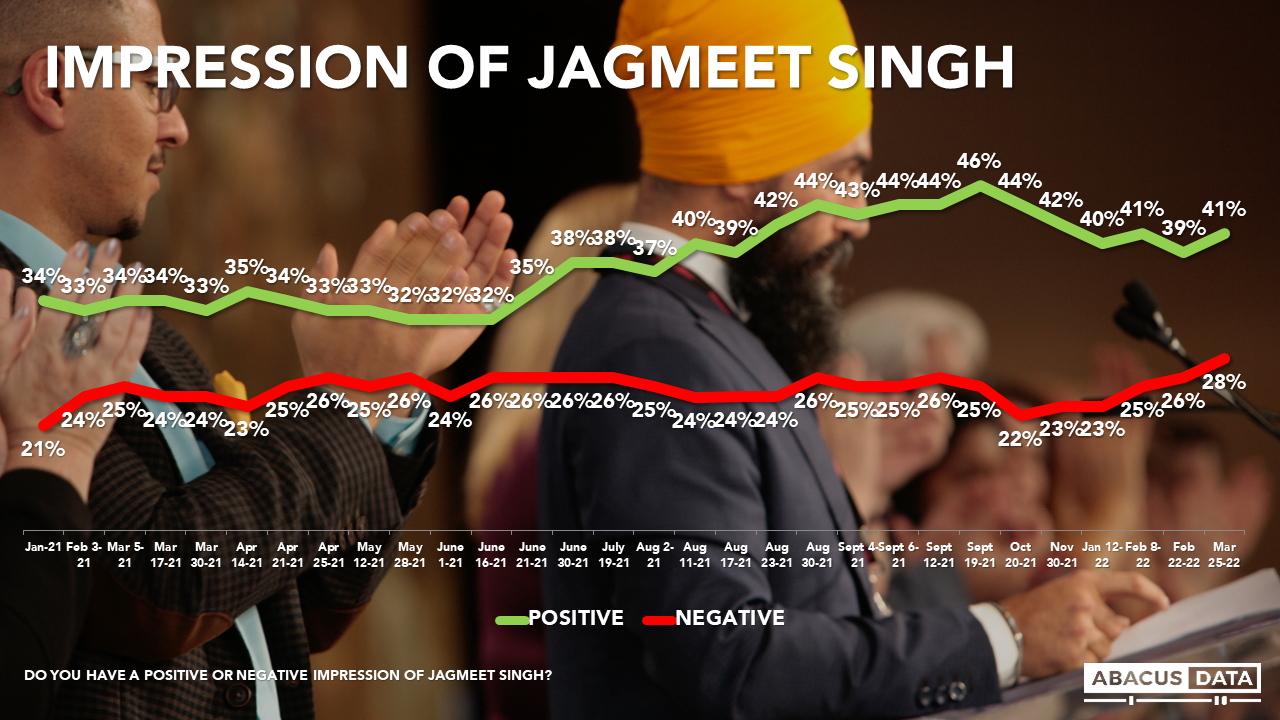

Today, 22% have a positive impression of interim Conservative leader Candice Bergen (+2 since Feb 22) while her negatives are at 30% (-2) for a net score of -8. Mr. O’Toole finished his time as leader with a net favourability of -25.
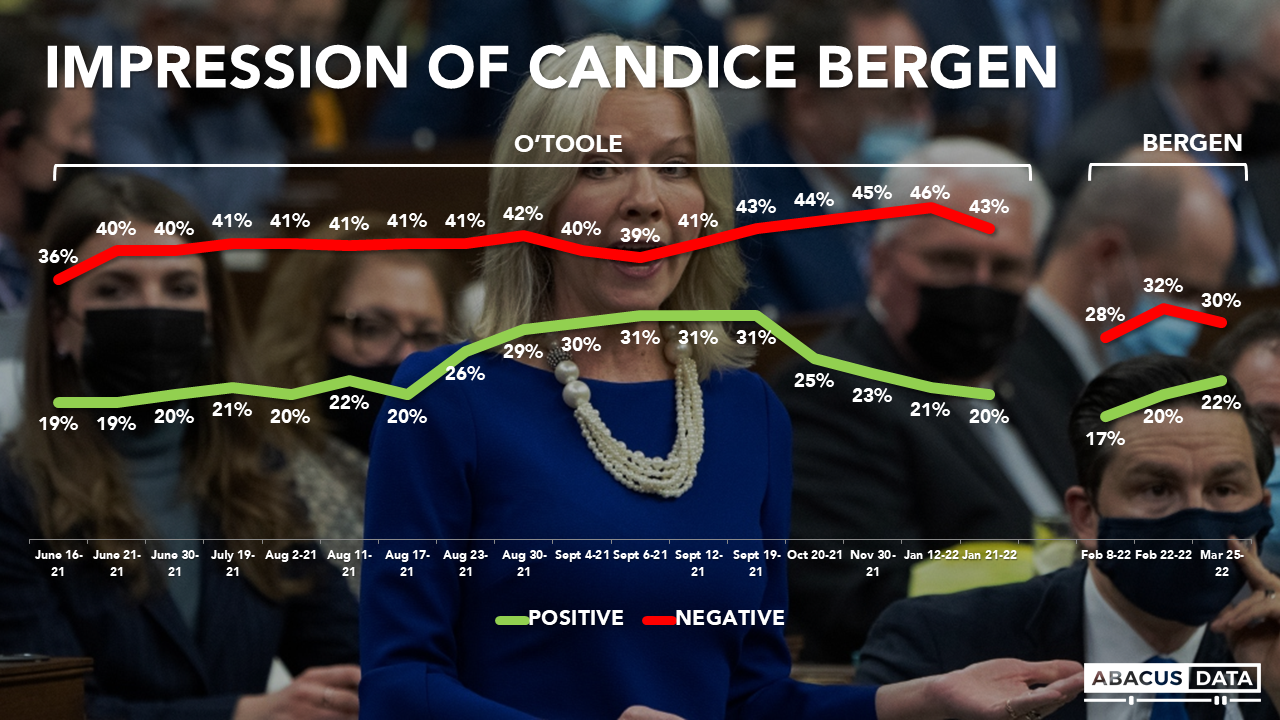
VOTING INTENTION
If an election were held now, the Conservatives would be marginally ahead of the Liberals but statistically tied with 33% and 31% for the Liberals. Compared with last month, the Conservatives are up 2 while the Liberal vote share is unchanged.
The NDP vote share is down 3-points since last month to 17%, its lowest level since early 2021. The BQ gets 7% nationally (33% in Quebec) followed by the People’s Party at 6% and the Greens at 4%.
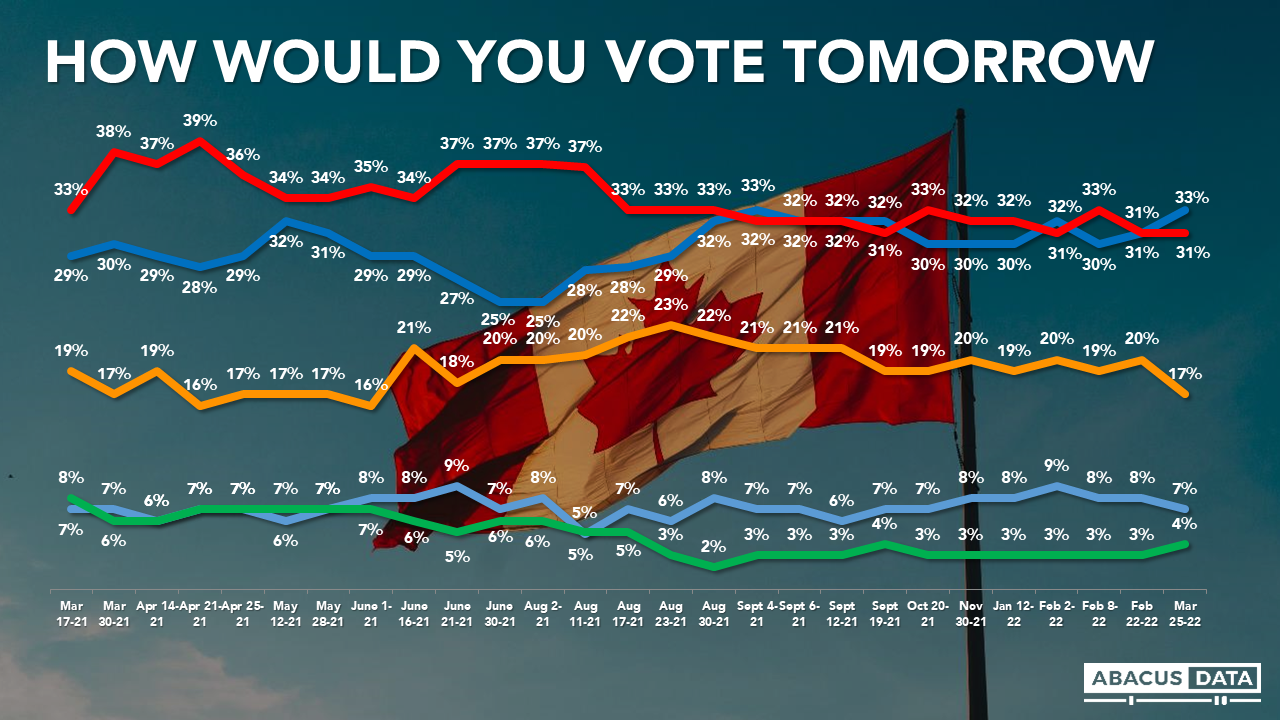
• BC: Conservatives are at 32%, and the Liberals at 28% and the NDP at 26%.
• Alberta: 52% would vote Conservative compared with 20% for the NDP, 17% for the Liberal Party, and 6% for the People’s Party.
• Manitoba and Saskatchewan: The Conservatives lead with 53% followed by the NDP at 21%, the Liberals at 14%, and the People’s Party at 9%.
• Ontario: The Liberals lead by 3 over the Conservatives (36% to 33%) with the NDP in third at 17%. The People’s Party is polling at 7% in Ontario. In Toronto and the GTHA (where 58% of the population lives), the Liberals are at 38%, the Conservatives at 35% and the NDP at 16%.
• Quebec: We see the BQ and Liberals basically tied (33% to 32%) with the Conservatives at 19%, the NDP at 8%.
• Atlantic: The Liberals are well ahead of the Conservatives (48% to 27%) with the NDP in third at 18%.
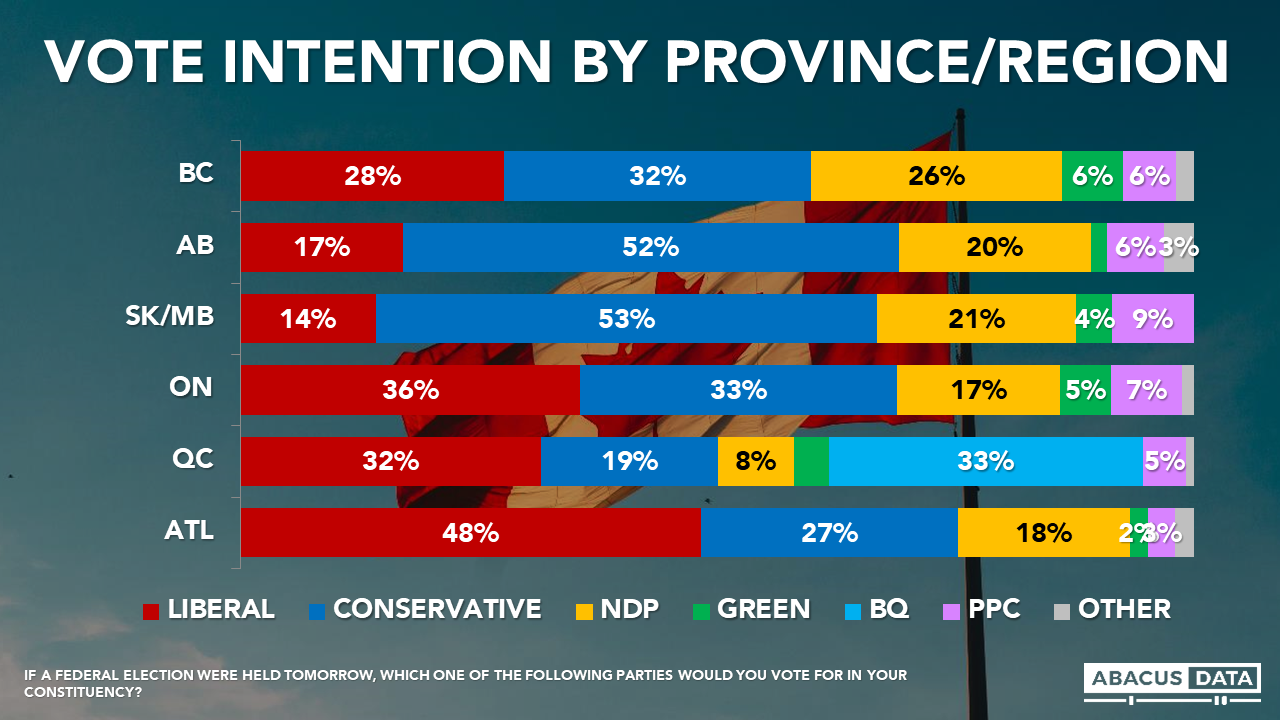
We don’t see much evidence of widespread vote shifting beyond what we normally see. Comparing current vote intention with the reported vote in the 2021 federal election, we find that 91% of Conservative voters would stick with the Conservatives, 86% of Liberal voters would stick with the Liberals, and 81% of NDP voters would stick with the NDP.

UPSHOT

According to Bruce Anderson: “It’s too early to know how the Liberal NDP supply and confidence agreement will ultimately turn out but a few things can be observed in these findings. First, a lot of people noticed it, more than is often the case with political developments in Ottawa. Second, even though roughly half of voters routinely are unhappy with the Liberals, a good number of the unhappy are prepared to think this arrangement might be good or at least won’t be bad for the country or for themselves. There’s something of a suspension of routine and reflexive suspicion and cynicism – perhaps this has to do less with the policy at the heart of the agreement than with the idea of parties agreeing to work together and also to avoid another election. “

According to David Coletto: “
According to David Coletto: “A lot has changed in the past month. When we were last in the field, the trucker occupation in downtown Ottawa was in full gear and Canadians were growing frustrated with both the situation and the Prime Minister’s response. Today, there is a war in Europe and the rising cost of living are clearly top of mind to people. The trucker convoy is now in the rear-view mirror.
Domestically, most Canadians are aware of the supply and confidence agreement between the Liberals and NDP, higher than much of what normally comes out of Ottawa. And the reaction so far is generally positive and splits across partisan lines. By almost a 2 to 1 margin, Canadians feel the deal with be a good rather than bad for Canada. Both Liberal and NDP voters are generally positive about the deal and what it might mean for them or the country at large.
All these changes have led to a slight shift in the opinion environment in Canada. Canadians are feeling more optimistic about the direction of the country, impressions of the Prime Minister have improved slightly, but the Liberals and Conservatives remain deadlocked in current vote intention. We will monitor the NDP’s vote share as the drop from last month is noteworthy and outside the margin of error for the survey.”
METHODOLOGY
The survey was conducted with 1,500 Canadian adults from March 22 to 25, 2022. A random sample of panelists were invited to complete the survey from a set of partner panels based on the Lucid exchange platform. These partners are typically double opt-in survey panels, blended to manage out potential skews in the data from a single source.
The margin of error for a comparable probability-based random sample of the same size is +/- 2.6% 19 times out of 20.
The data were weighted according to census data to ensure that the sample matched Canada’s population according to age, gender, educational attainment, and region. Totals may not add up to 100 due to rounding.
This survey was paid for by Abacus Data Inc.
Abacus Data follows the CRIC Public Opinion Research Standards and Disclosure Requirements that can be found here: https://canadianresearchinsightscouncil.ca/standards/
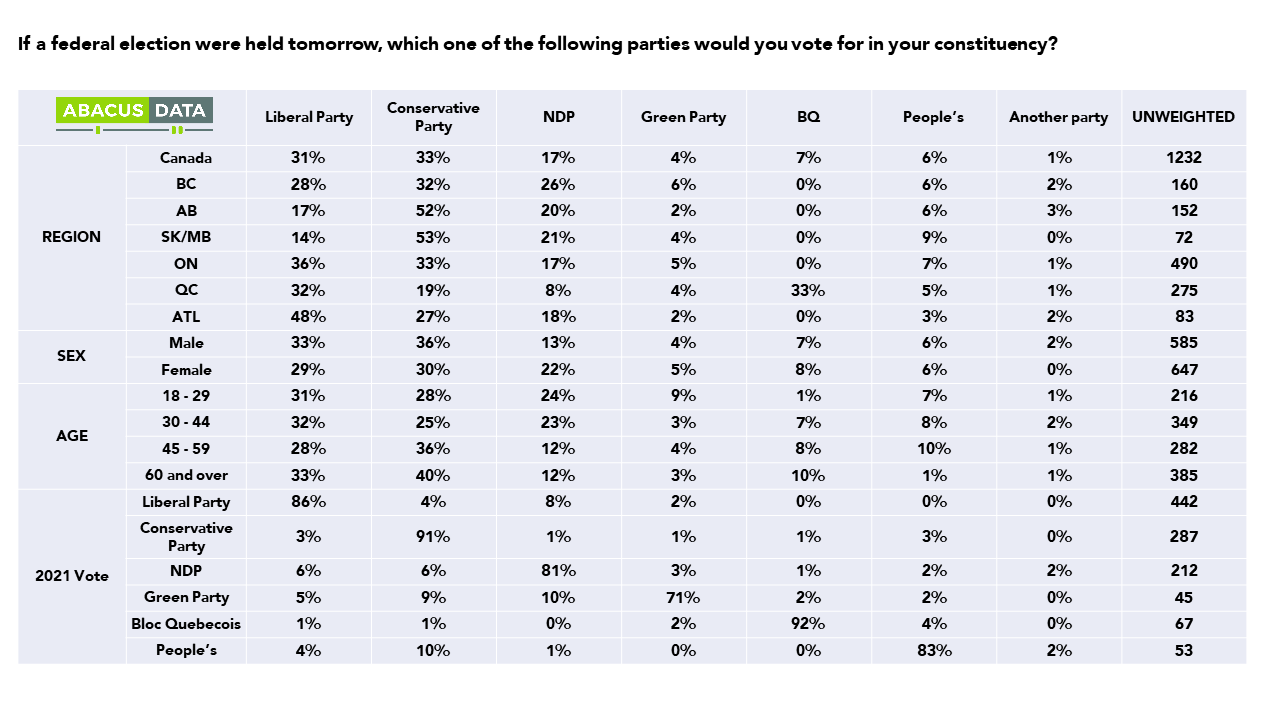
ABOUT ABACUS DATA
We are the only research and strategy firm that helps organizations respond to the disruptive risks and opportunities in a world where demographics and technology are changing more quickly than ever.
We are an innovative, fast-growing public opinion and marketing research consultancy. We use the latest technology, sound science, and deep experience to generate top-flight research-based advice to our clients. We offer global research capacity with a strong focus on customer service, attention to detail and exceptional value.
We were one of the most accurate pollsters conducting research during the 2021 Canadian election following up on our outstanding record in 2019.
Contact us with any questions.
Find out more about how we can help your organization by downloading our corporate profile and service offering.



